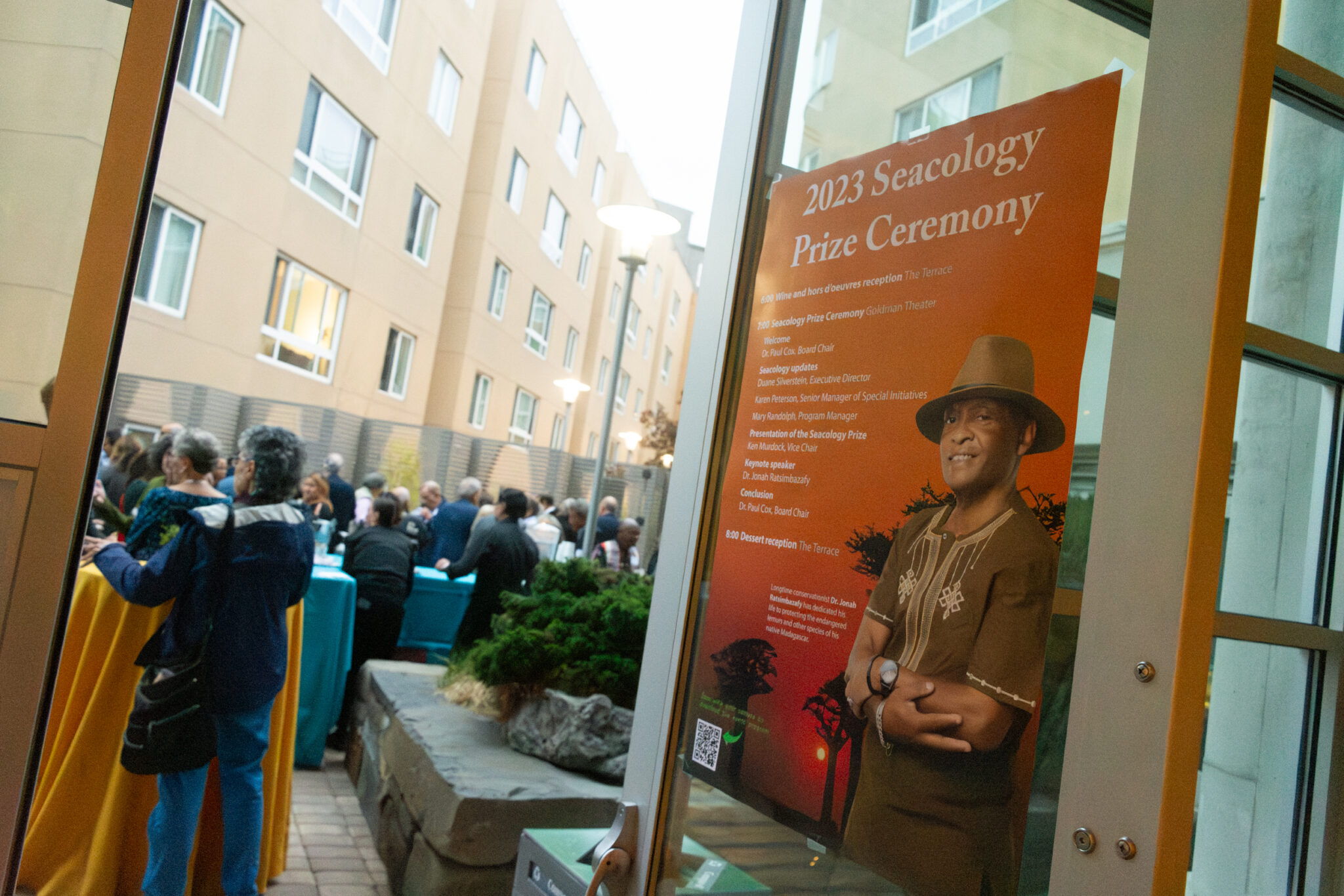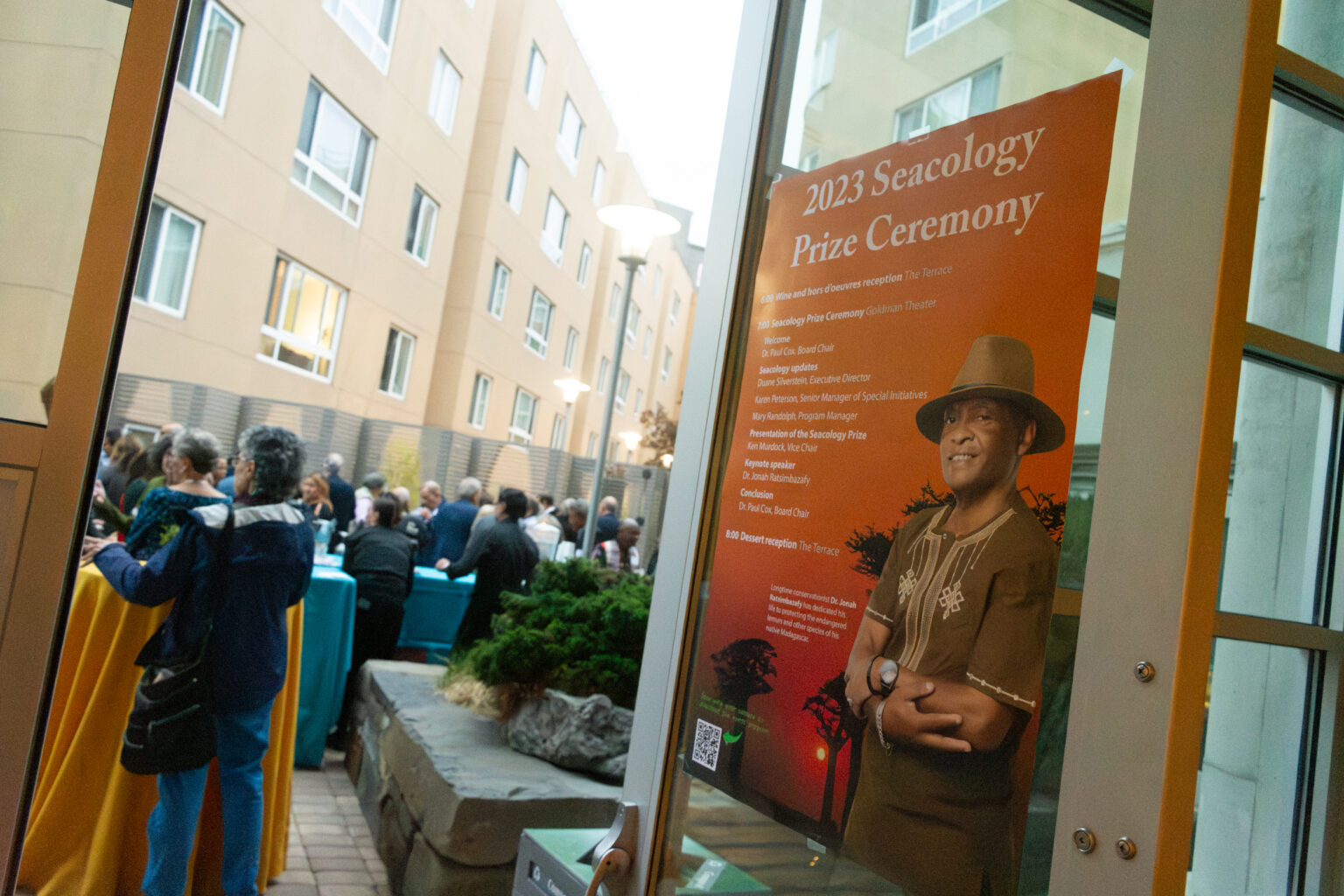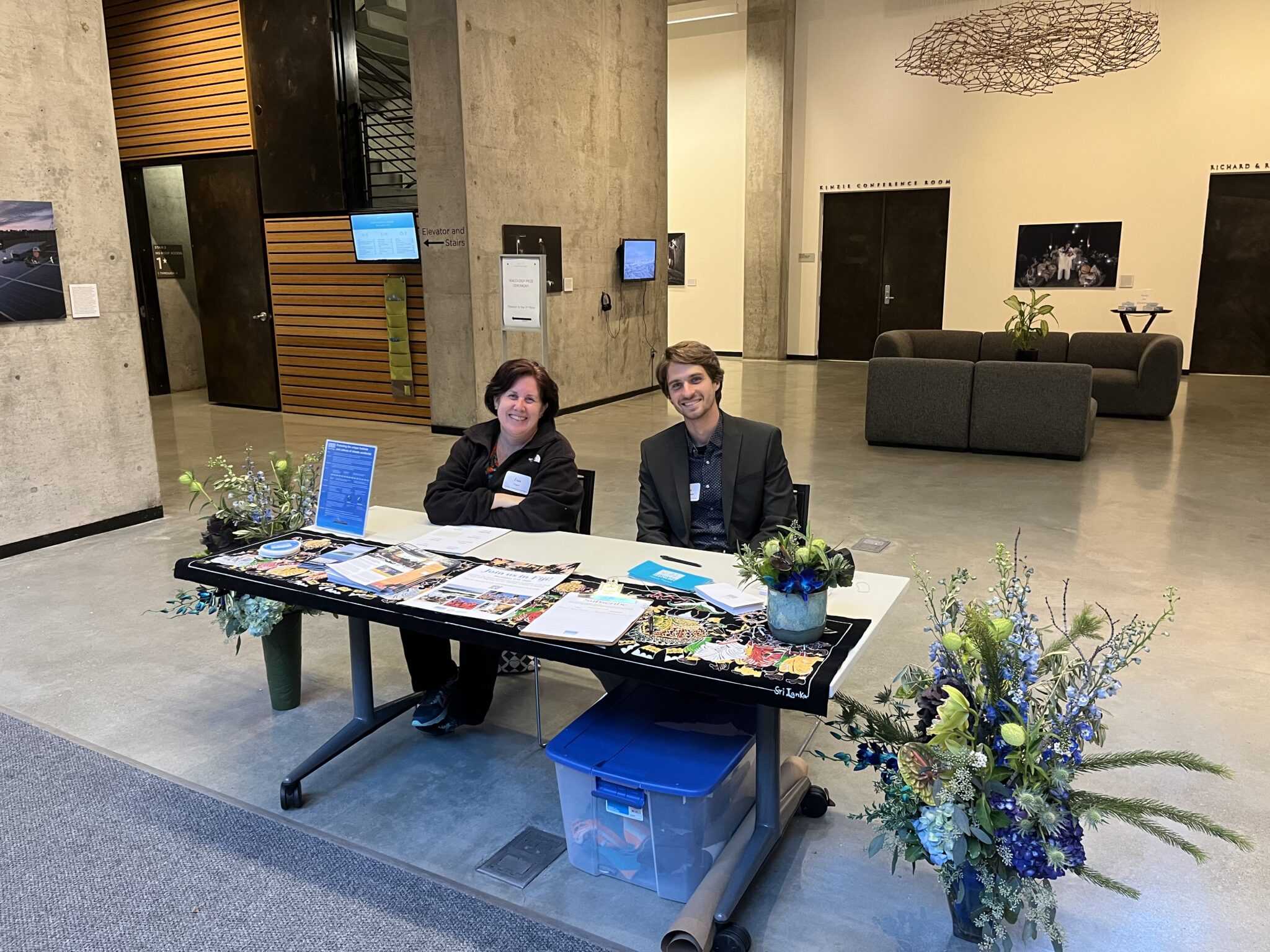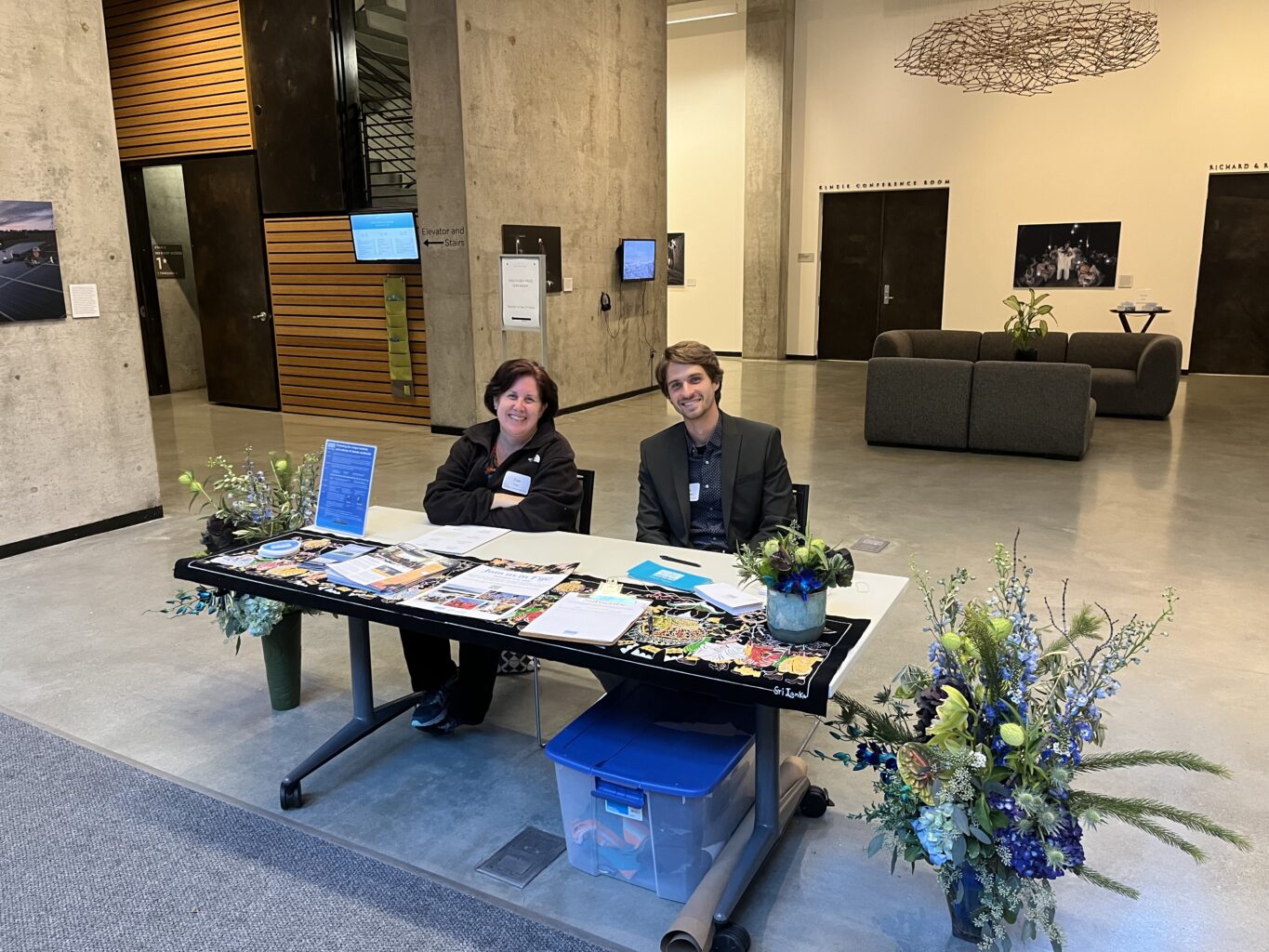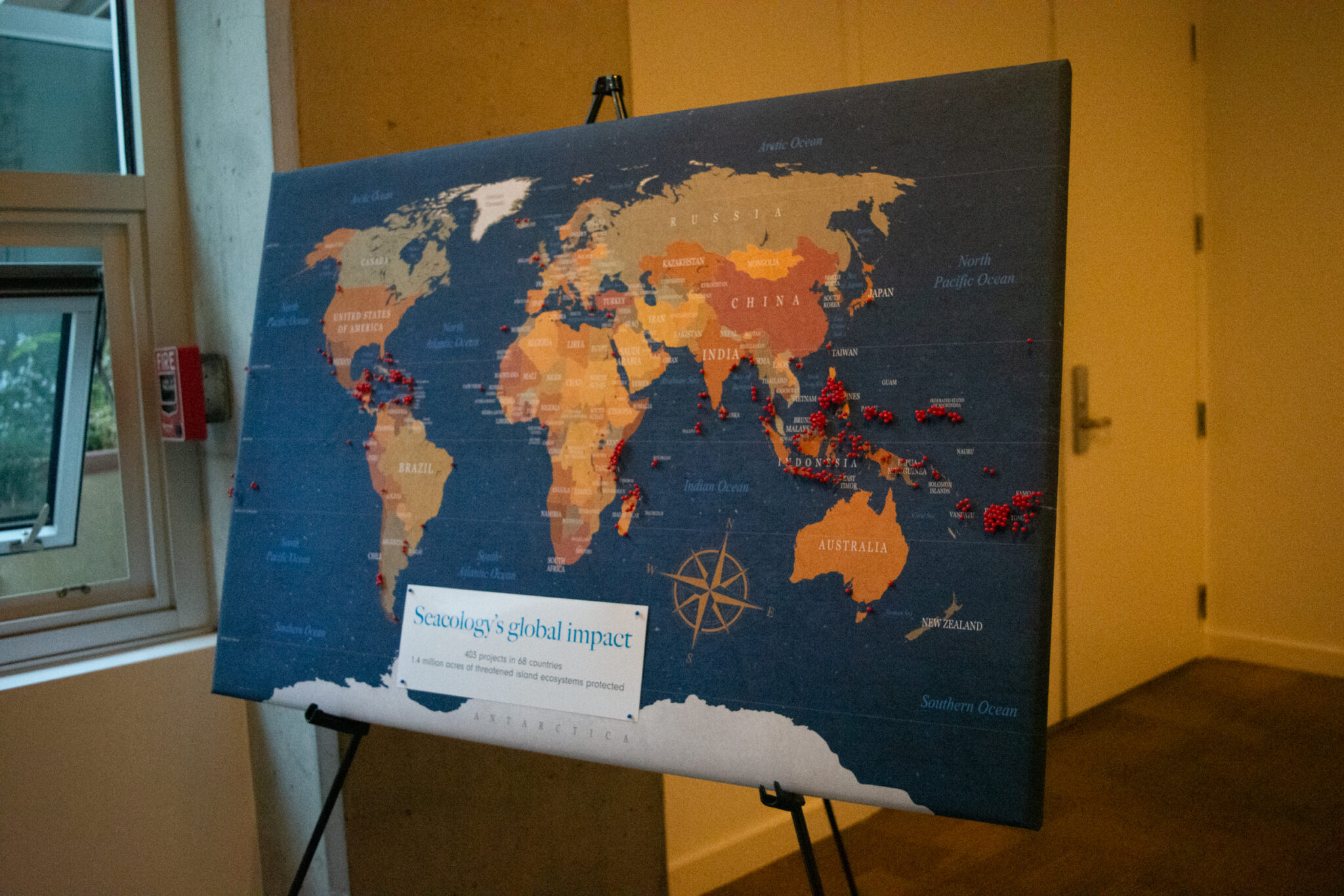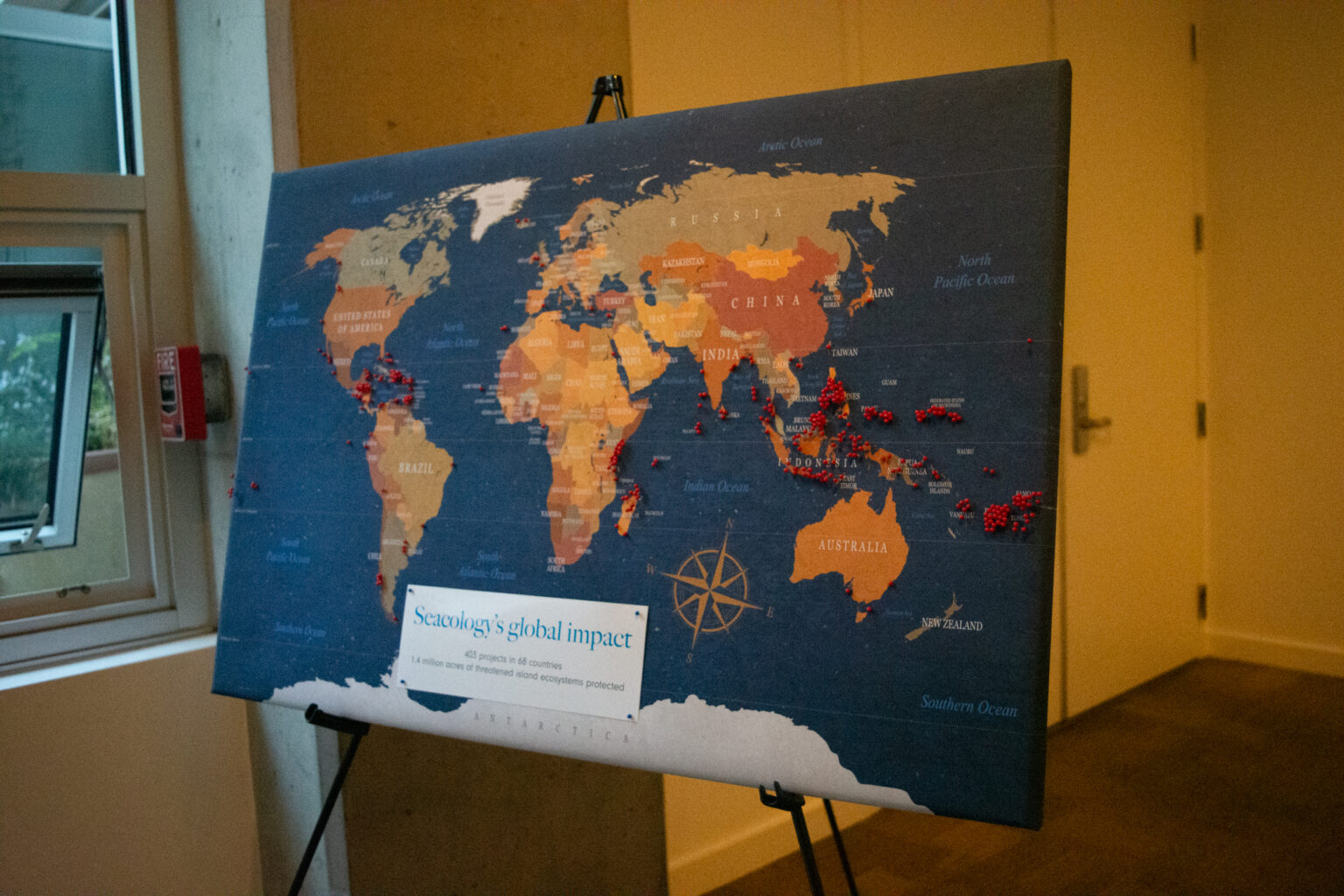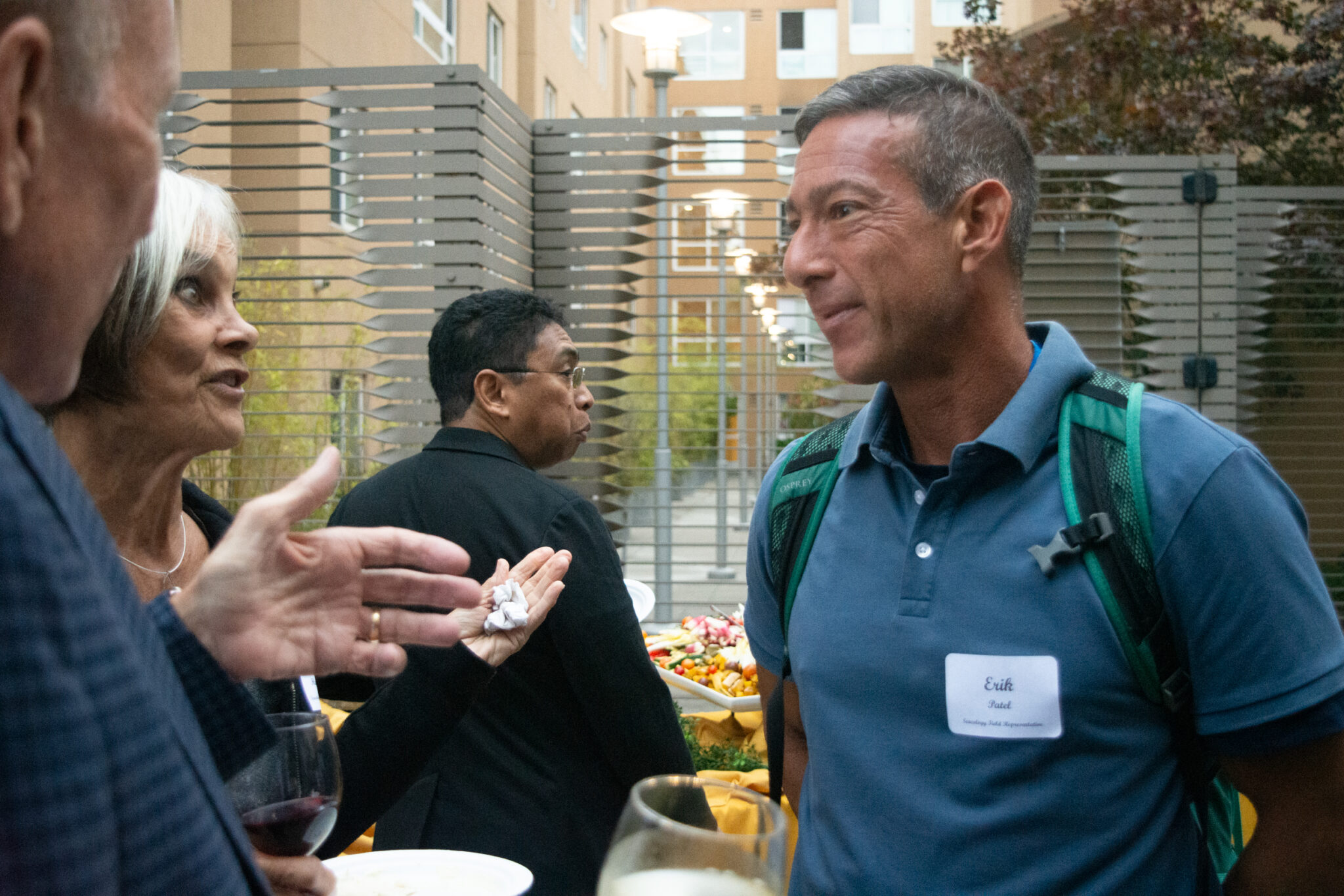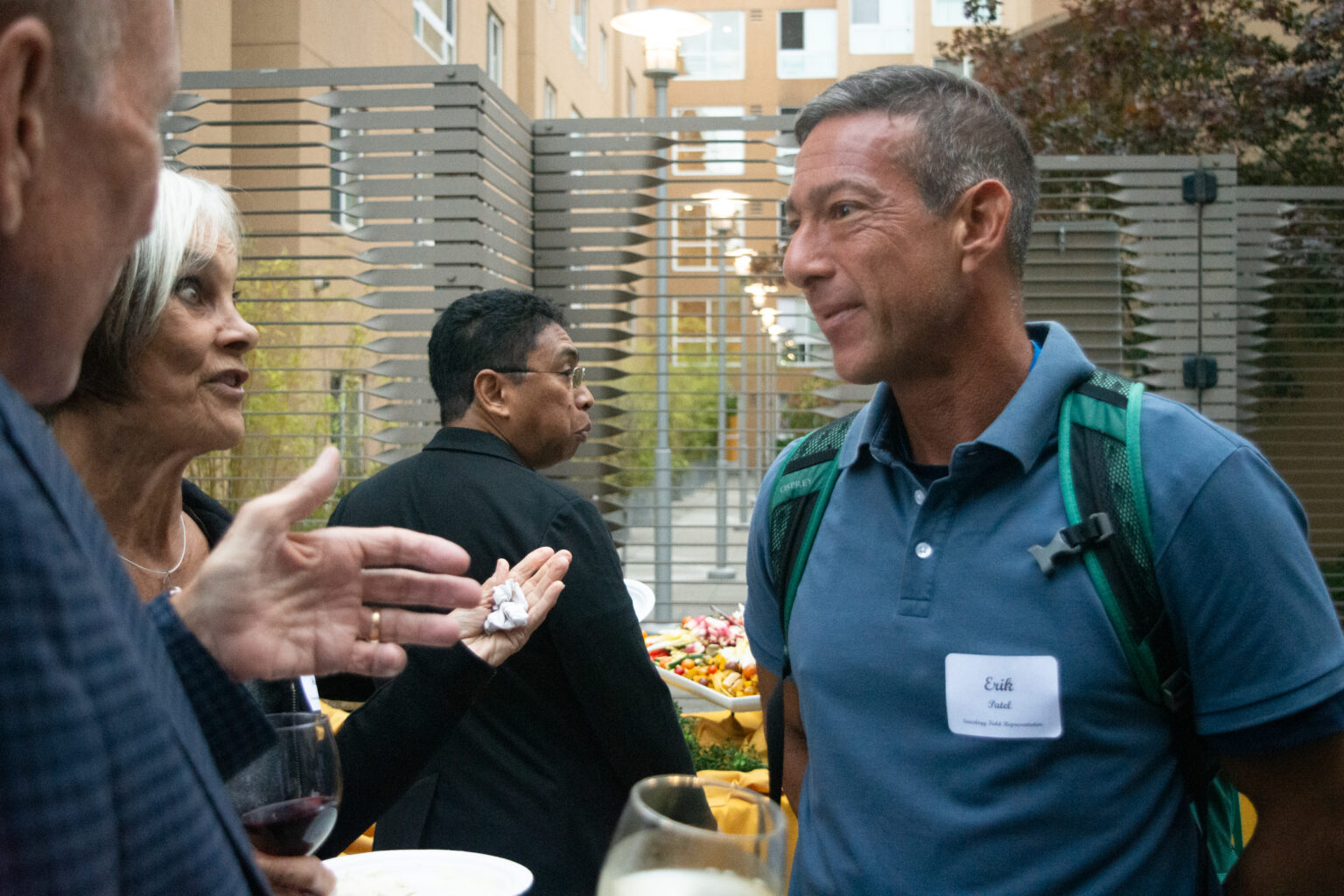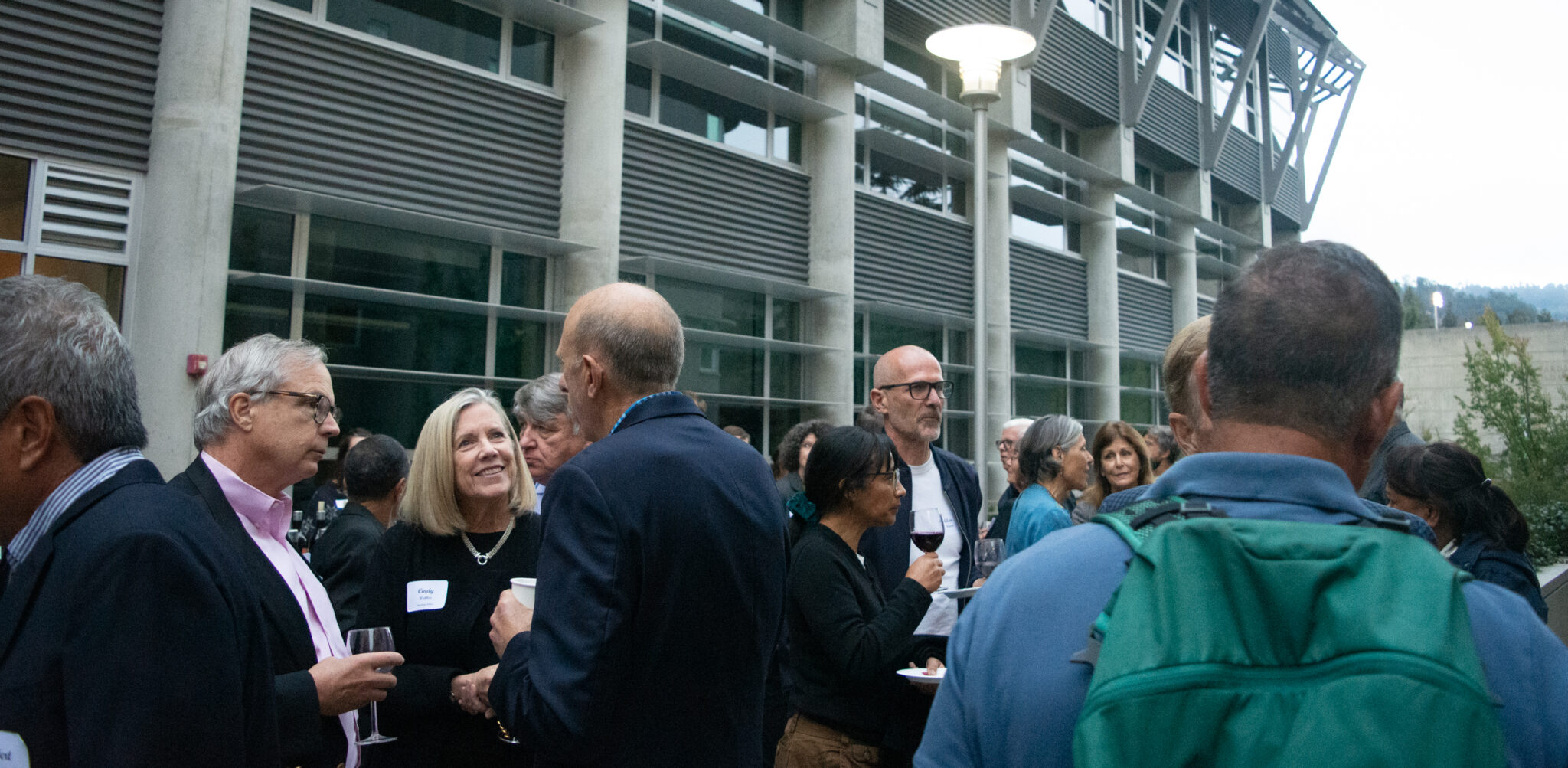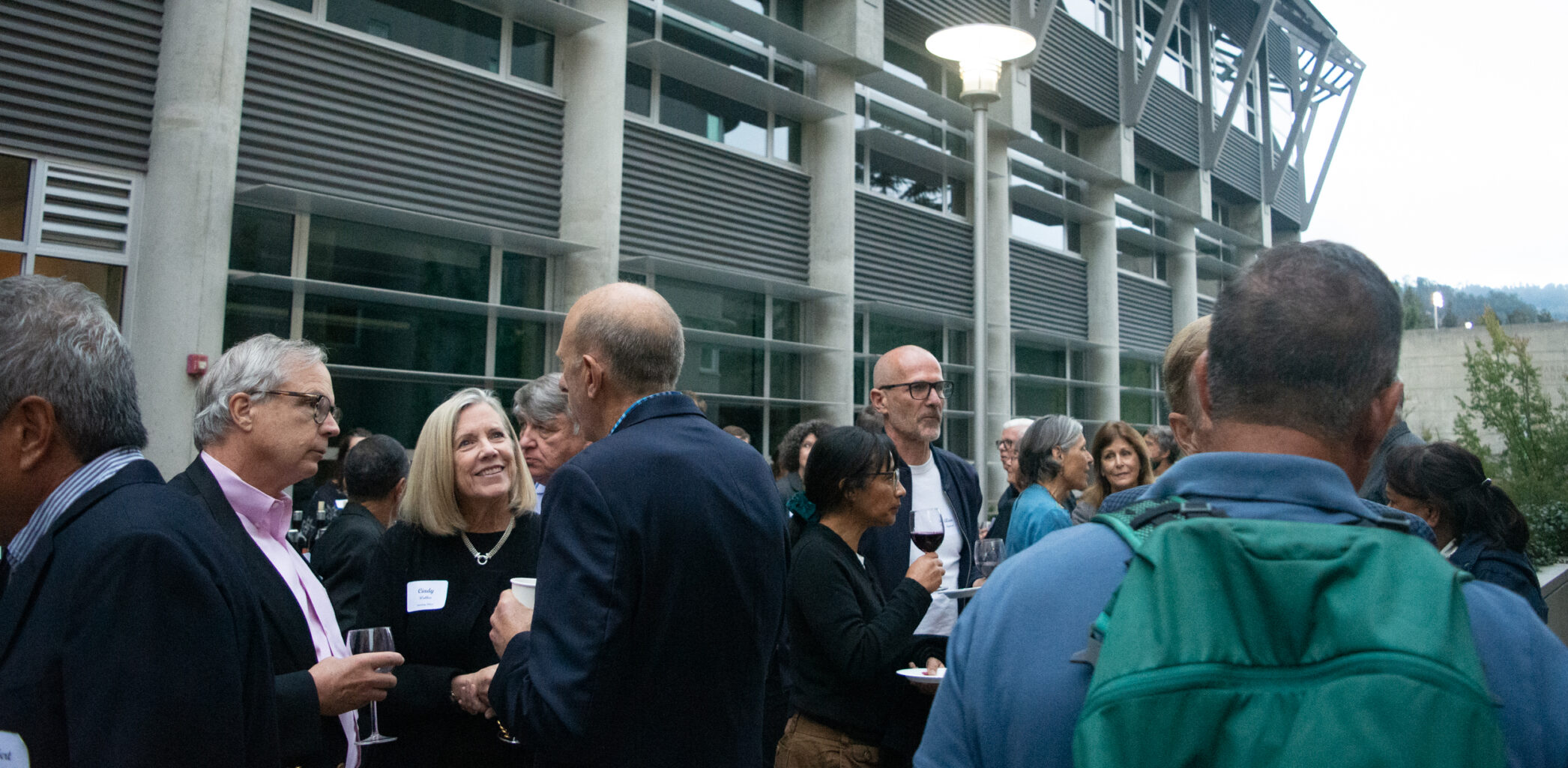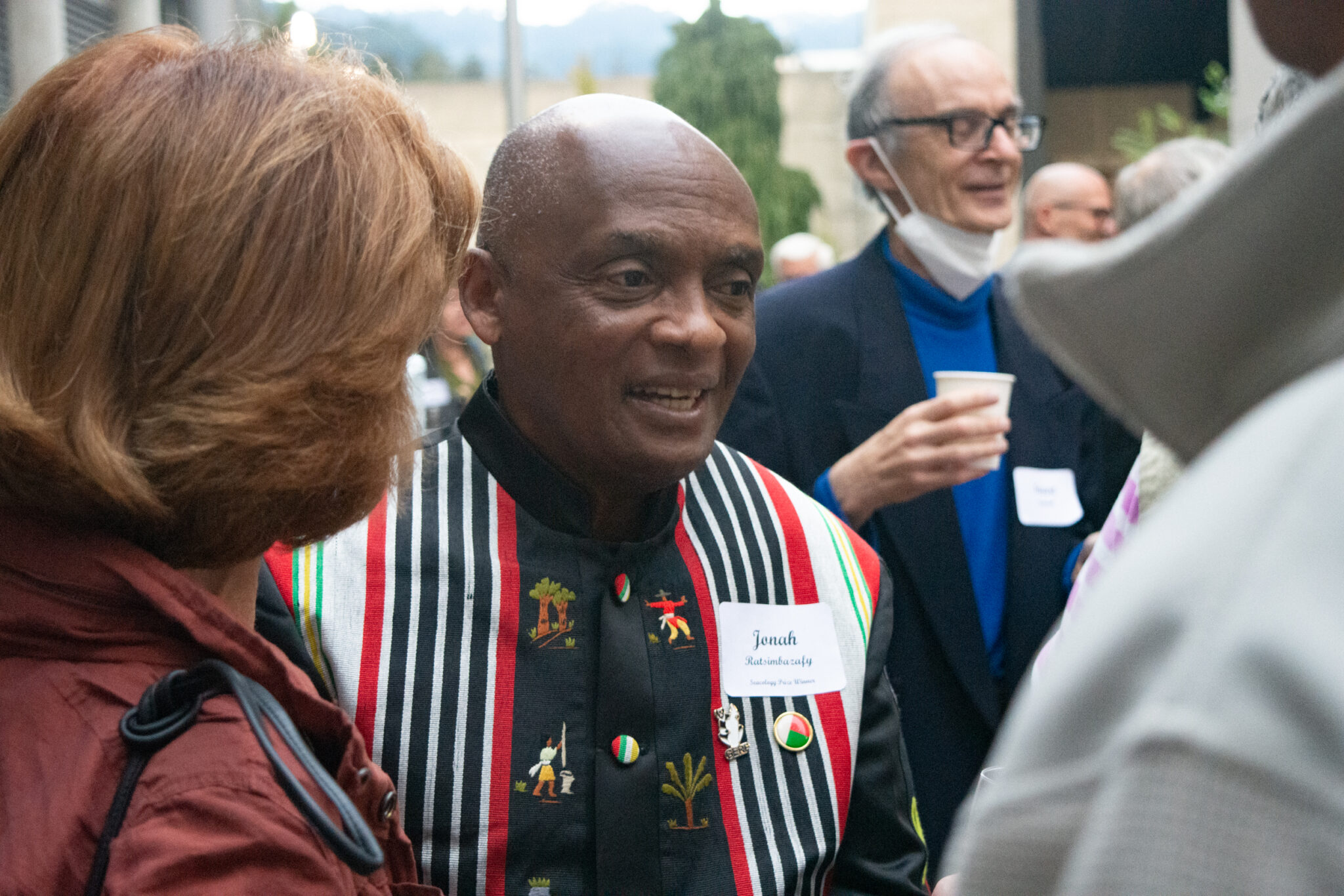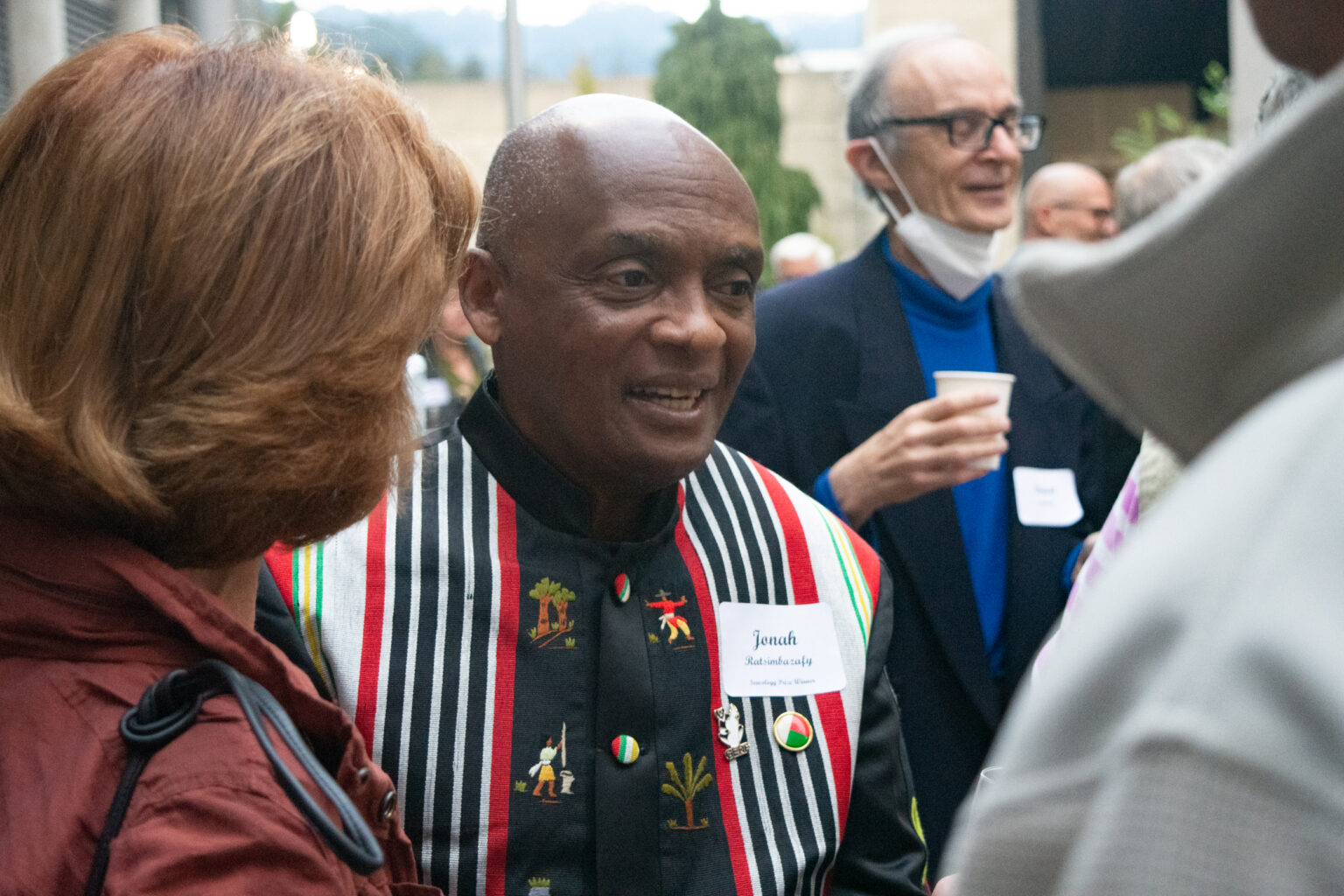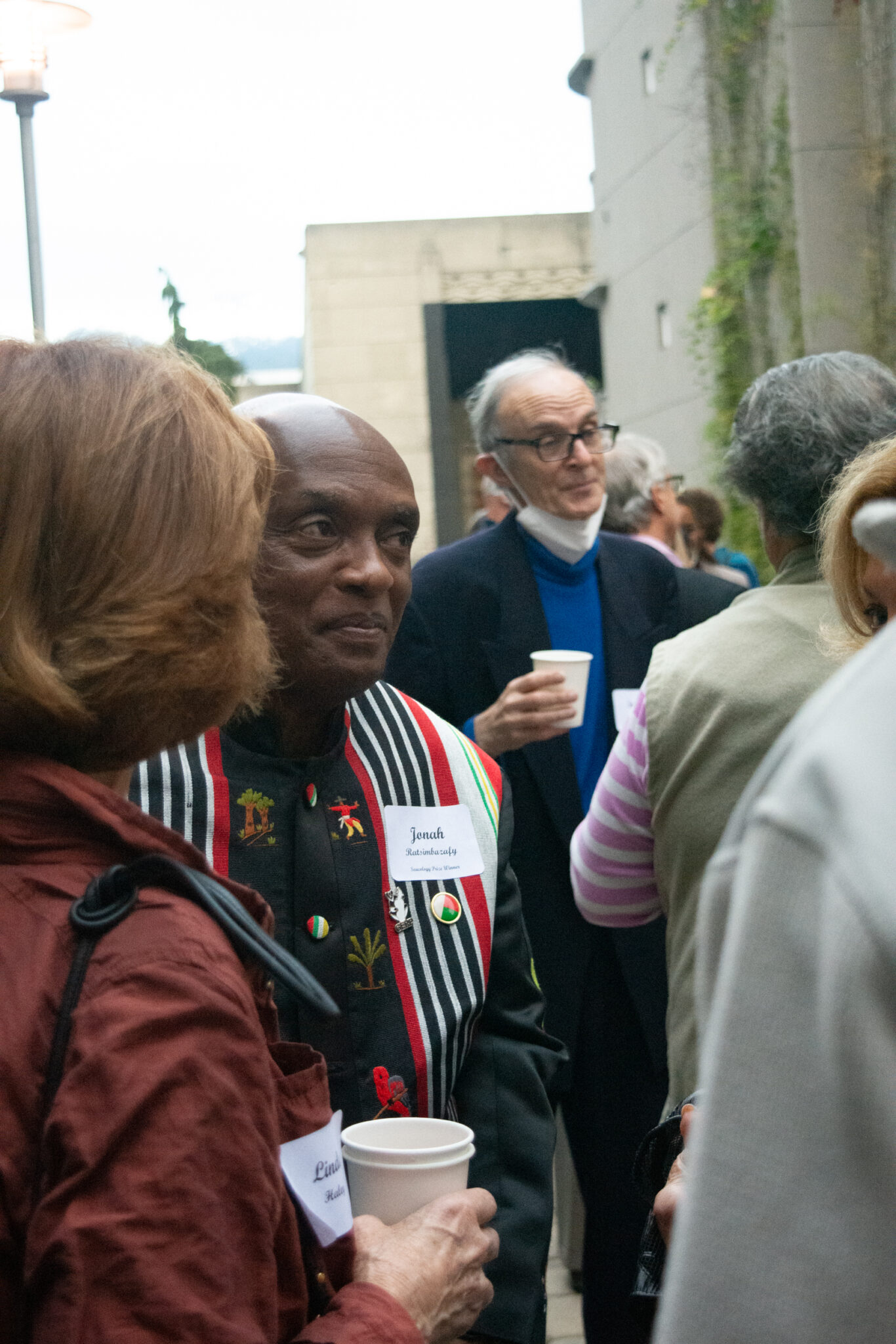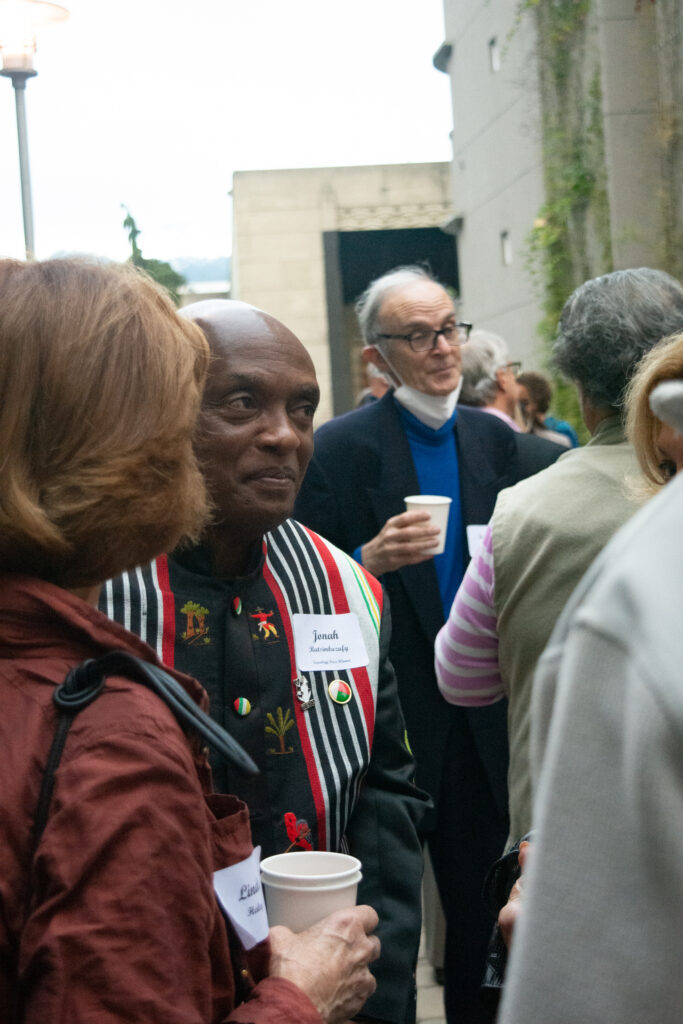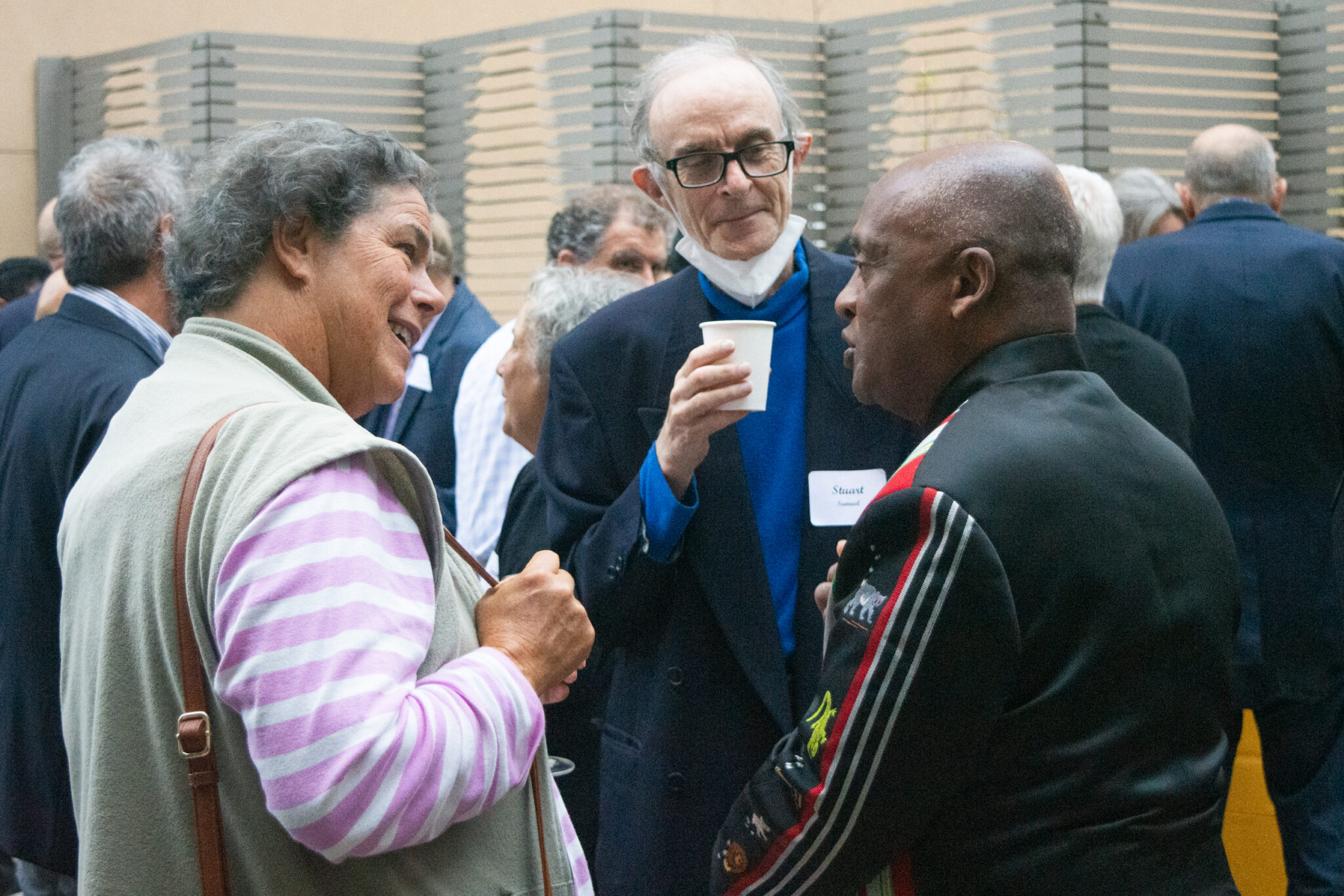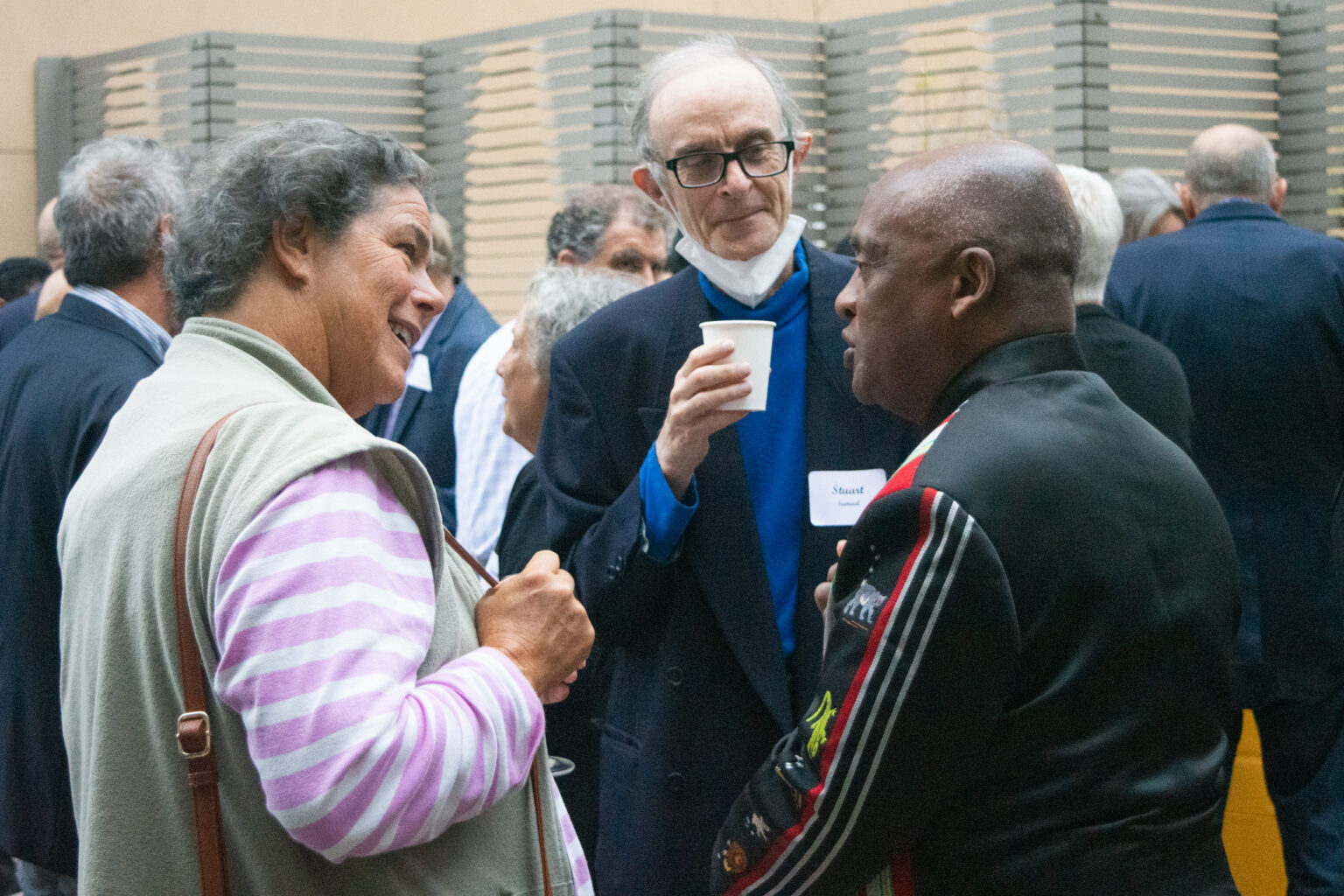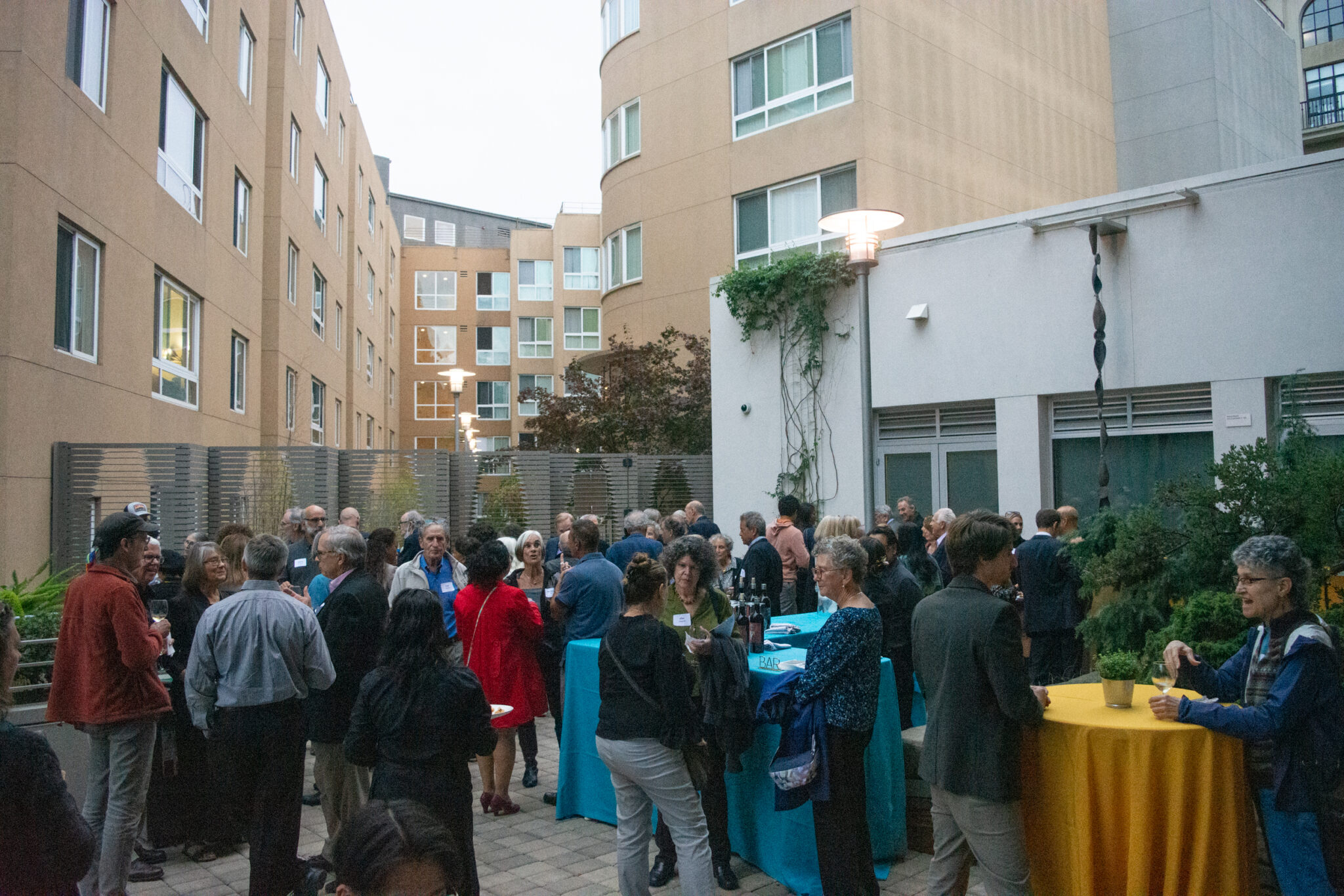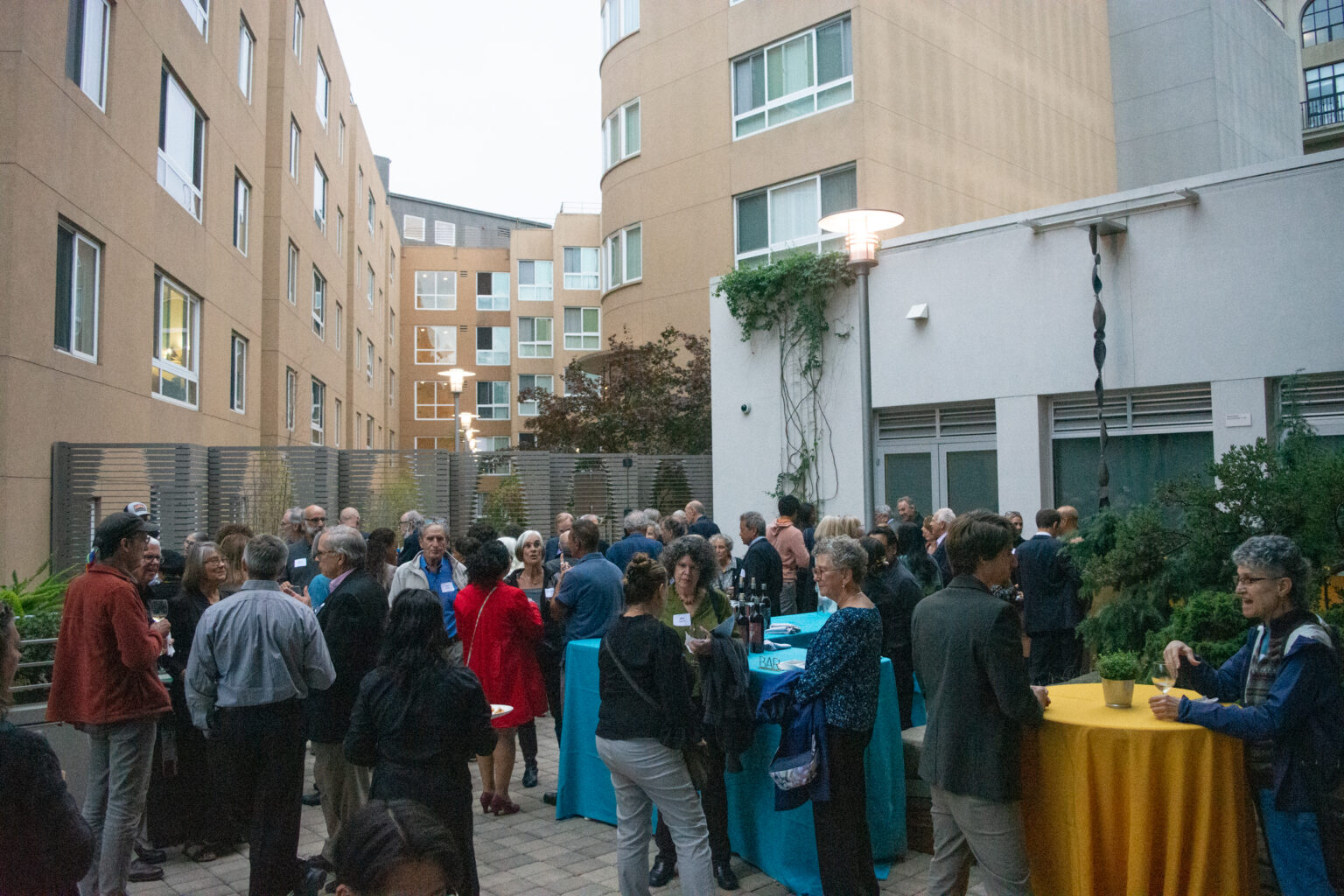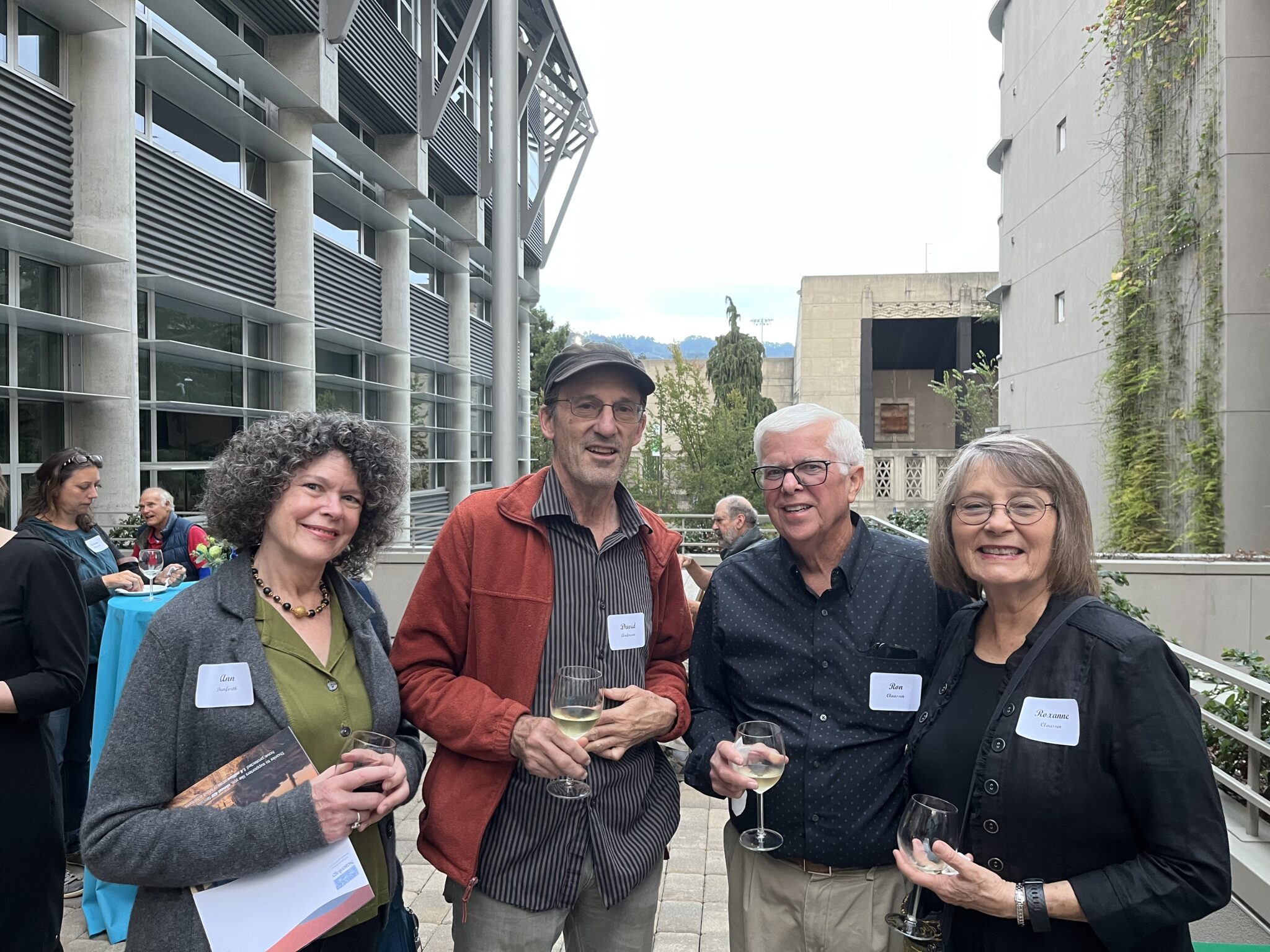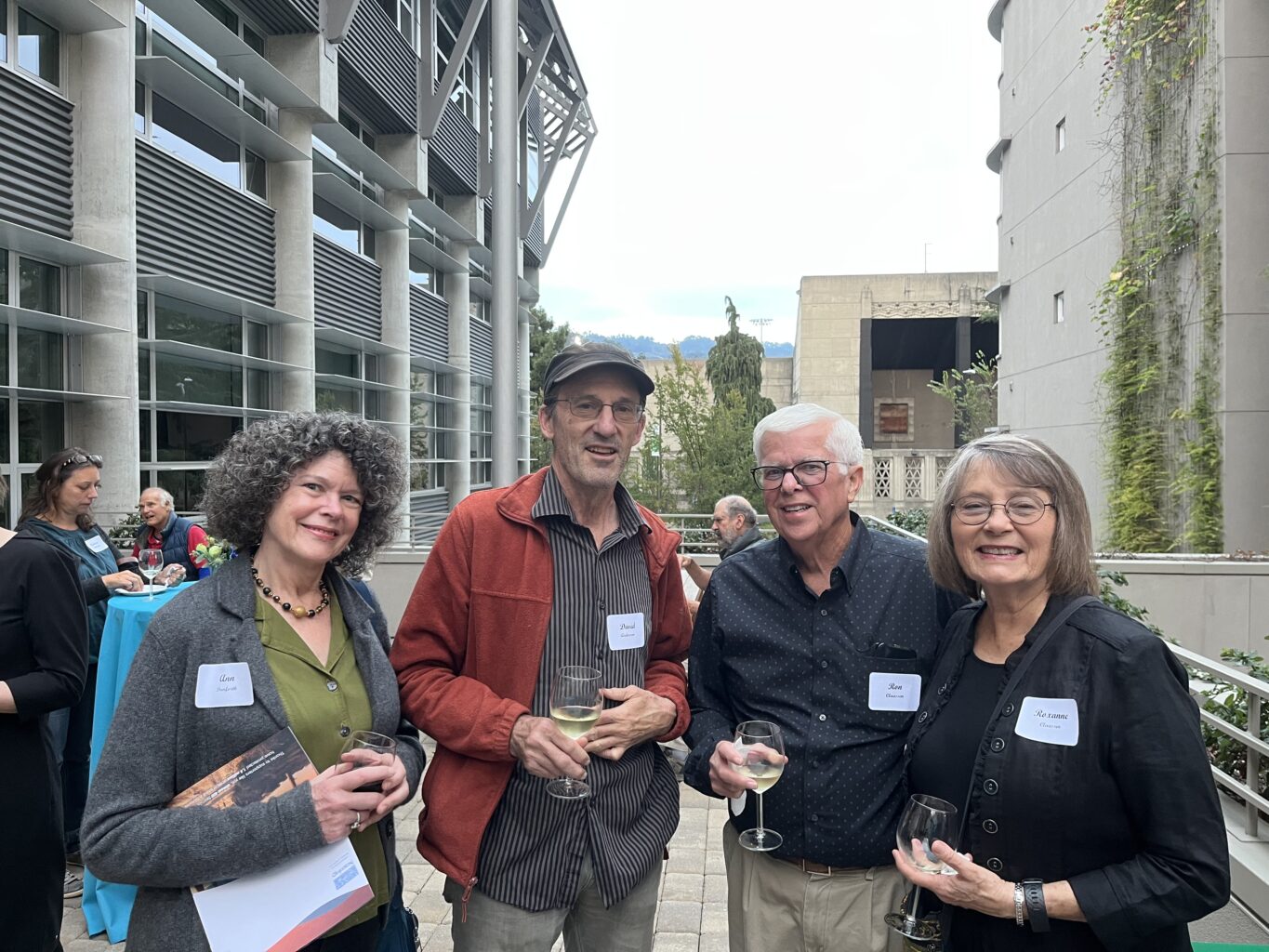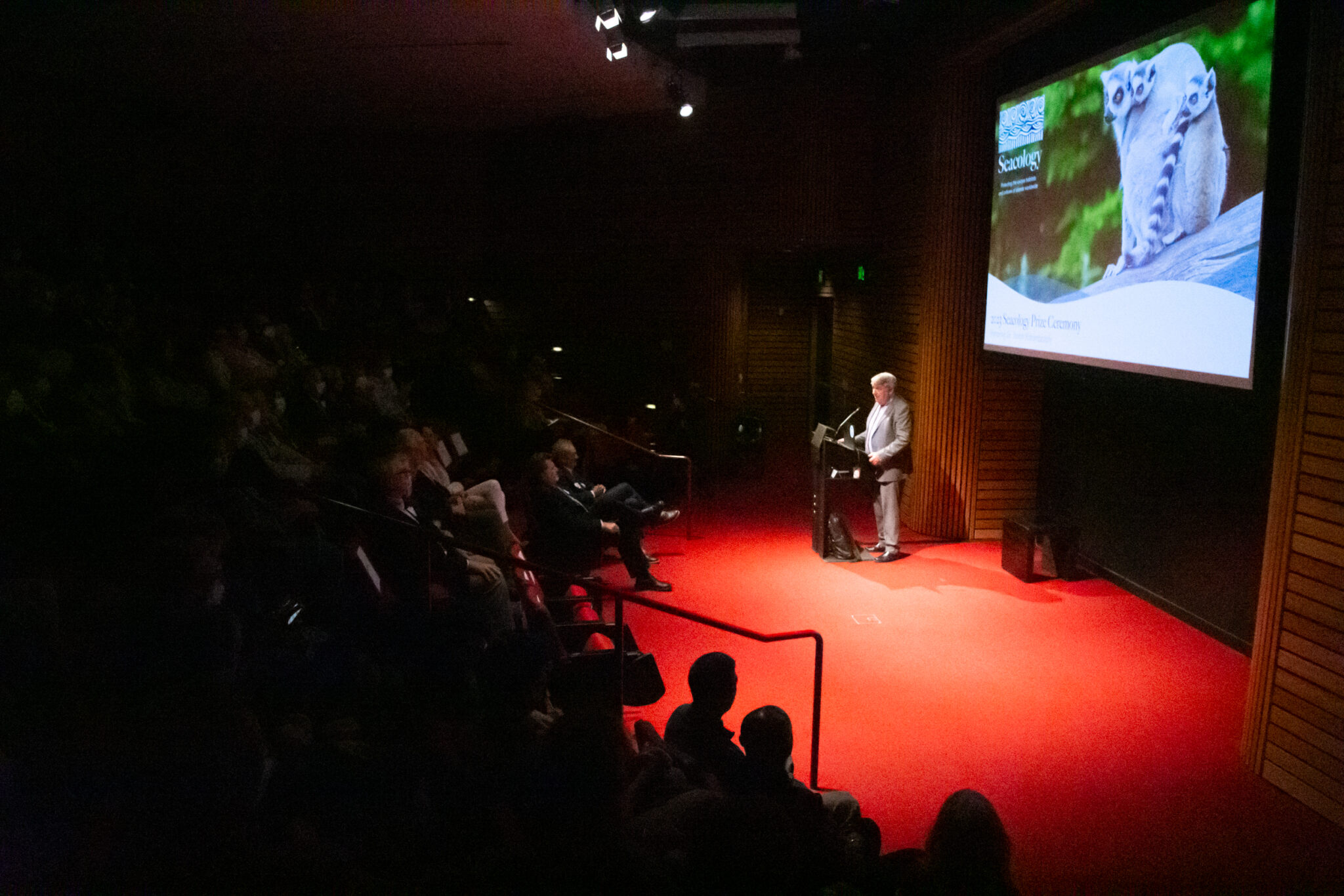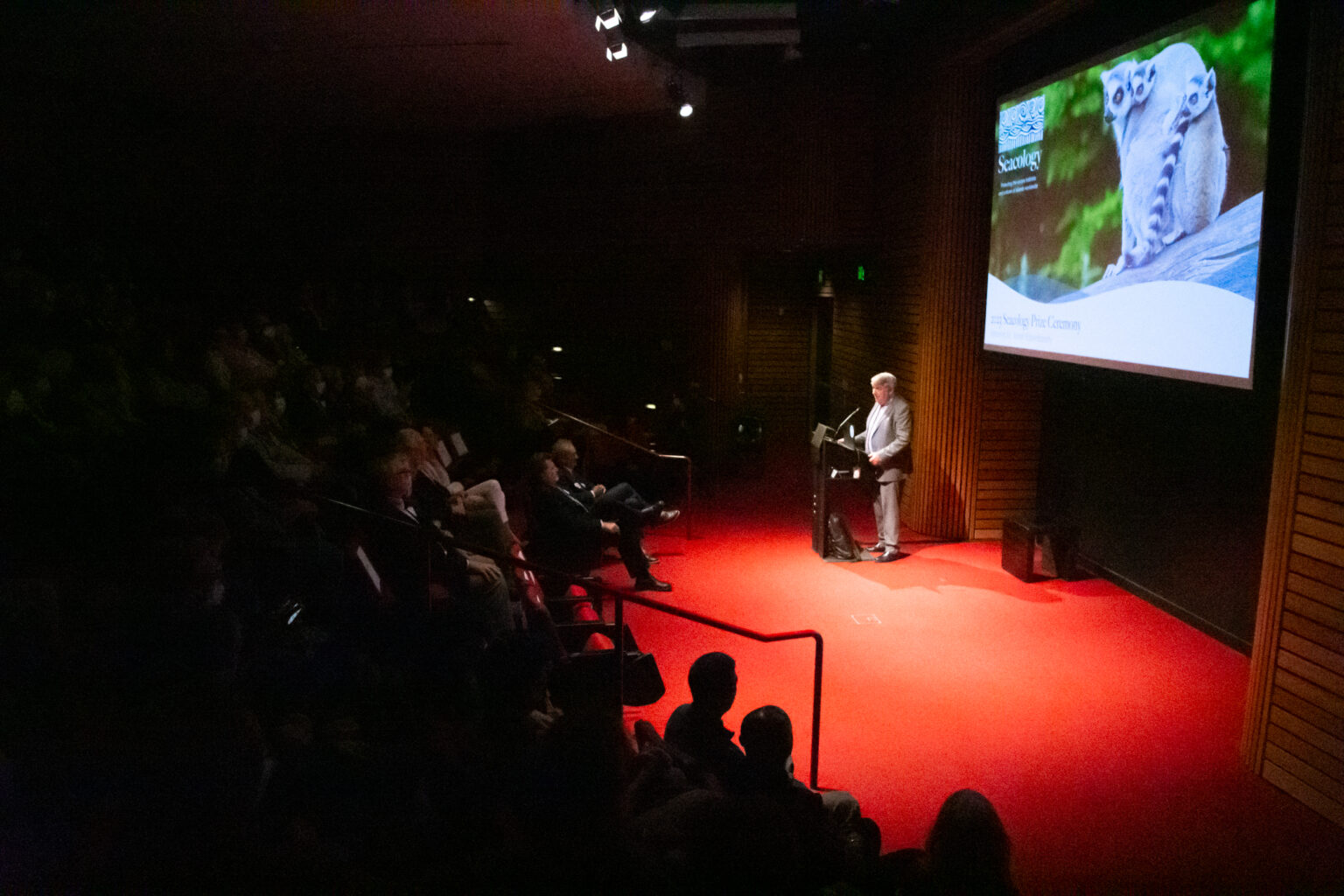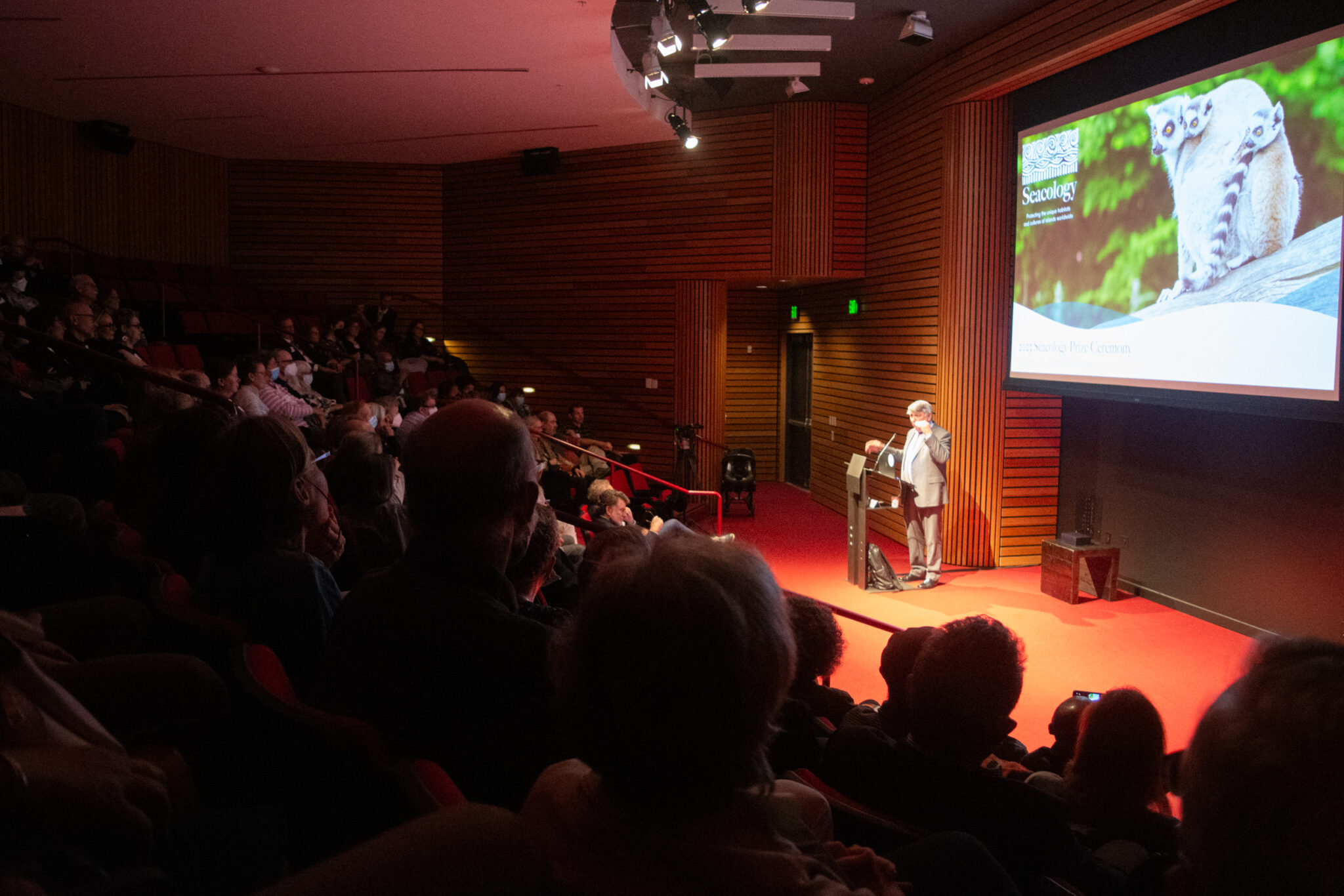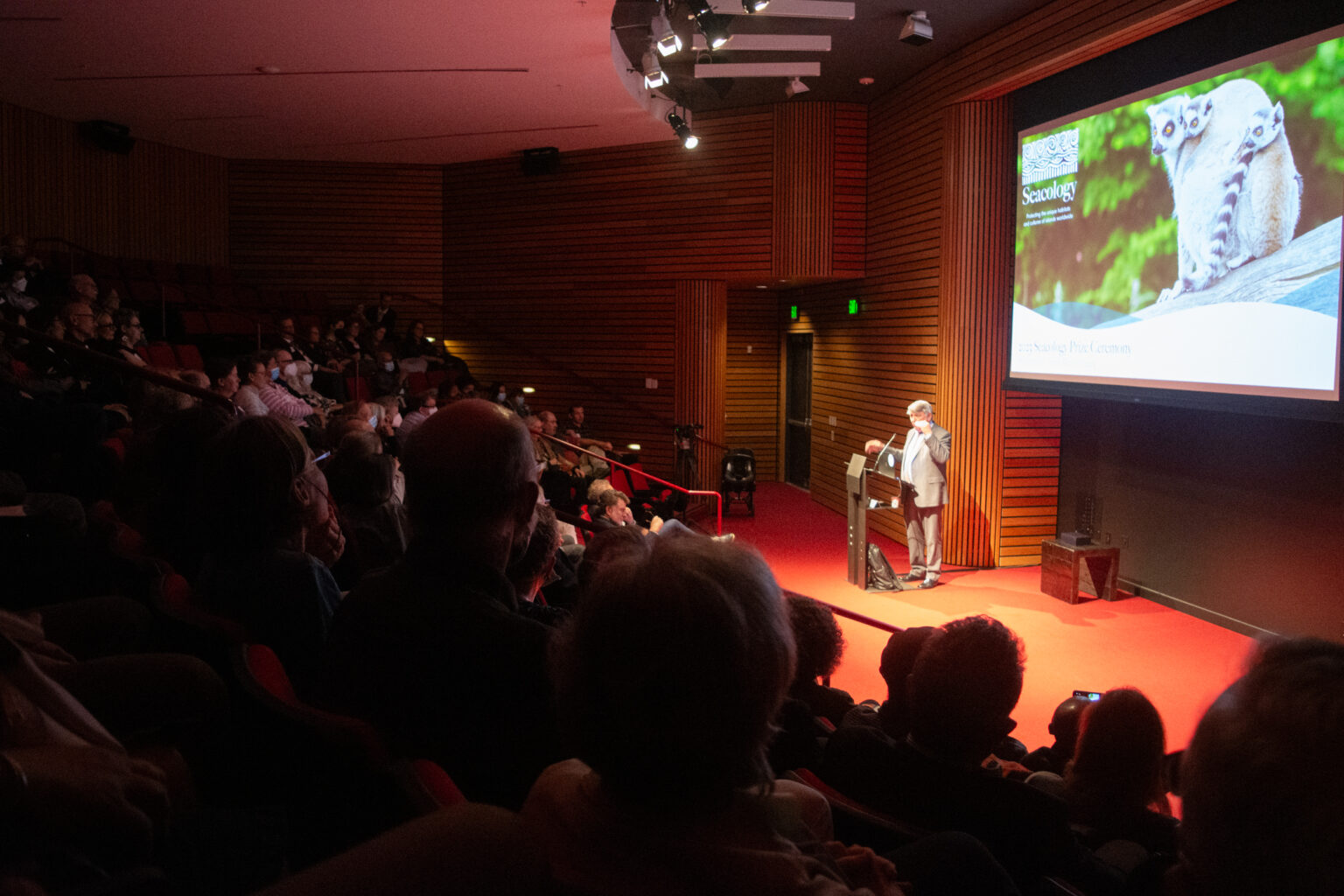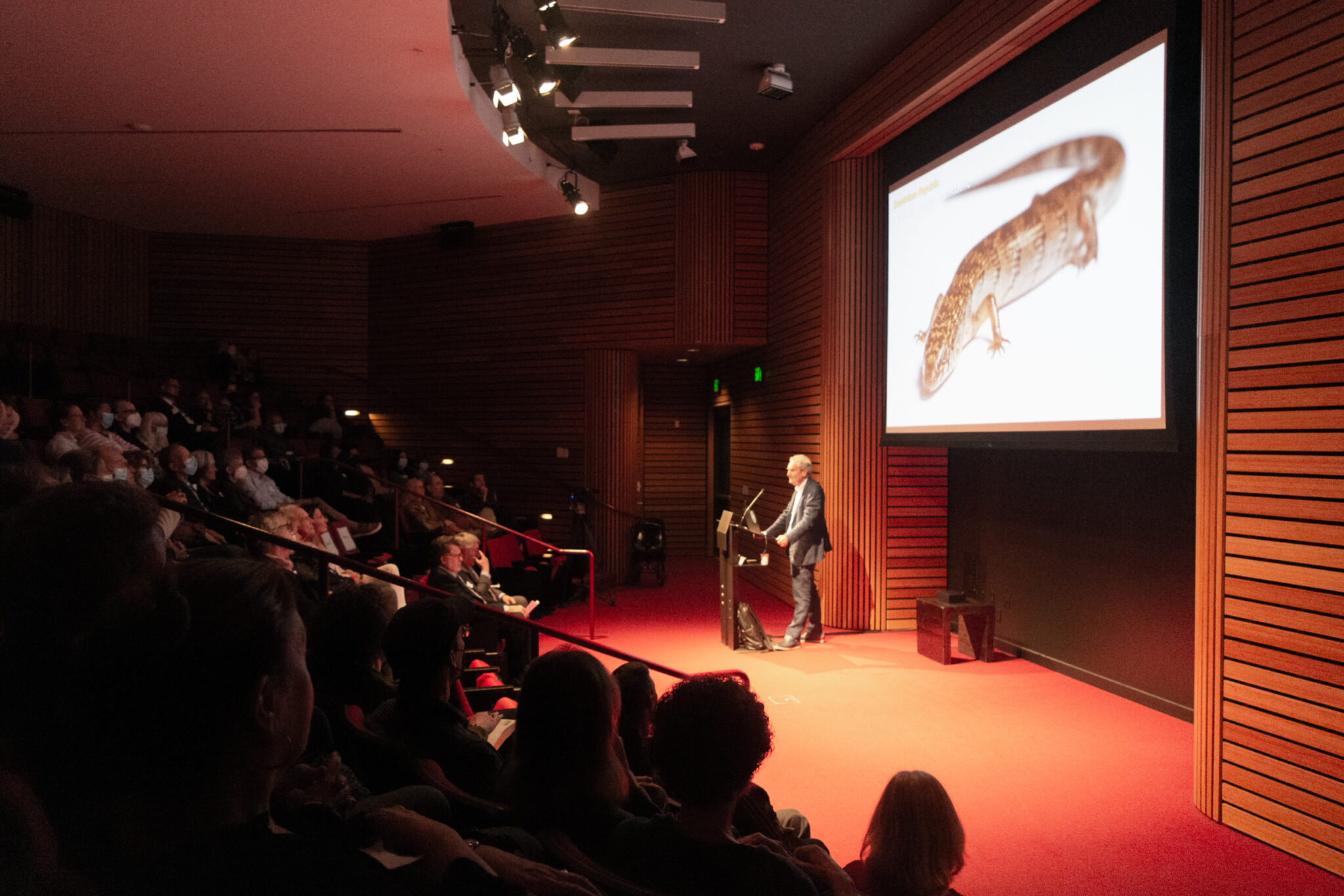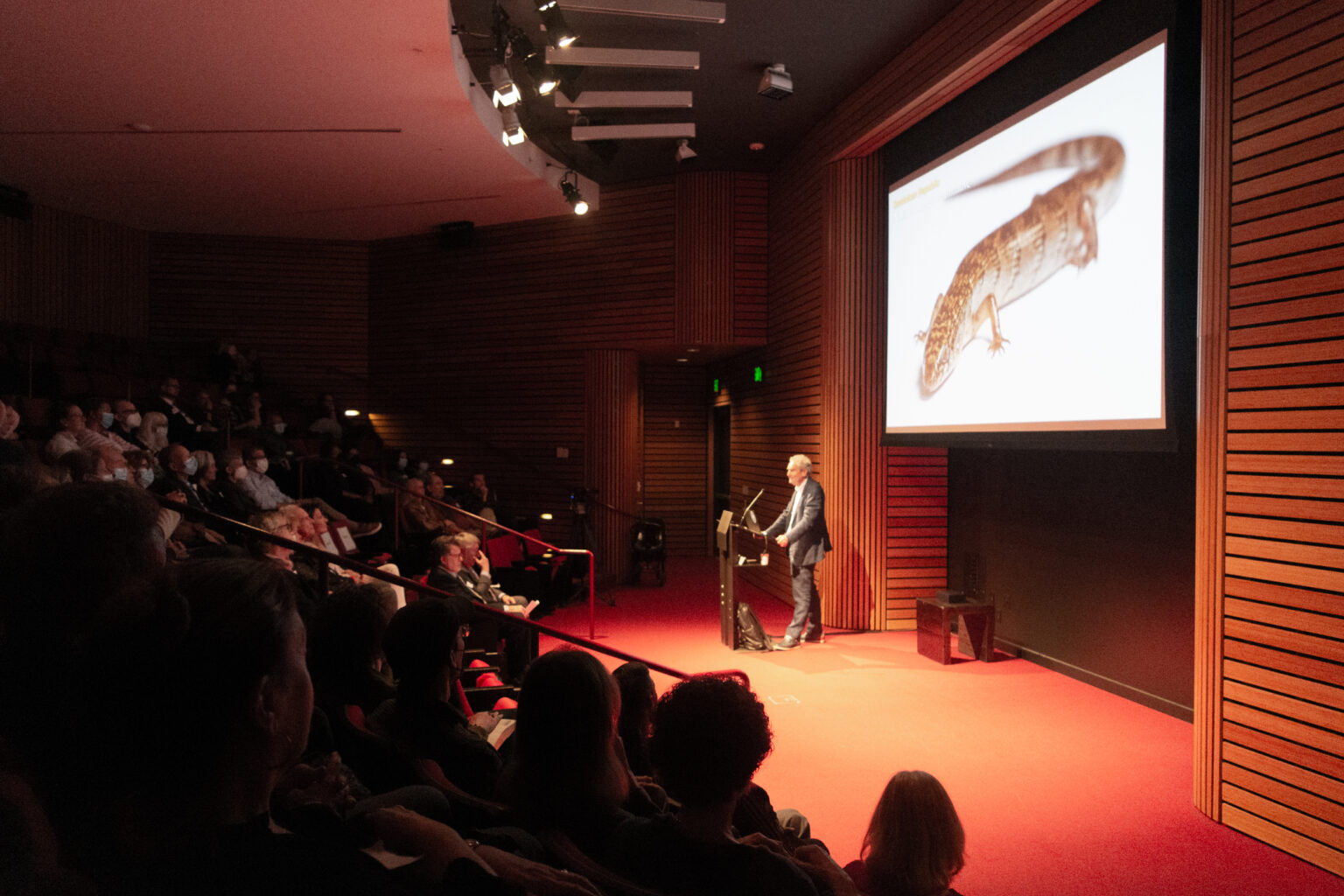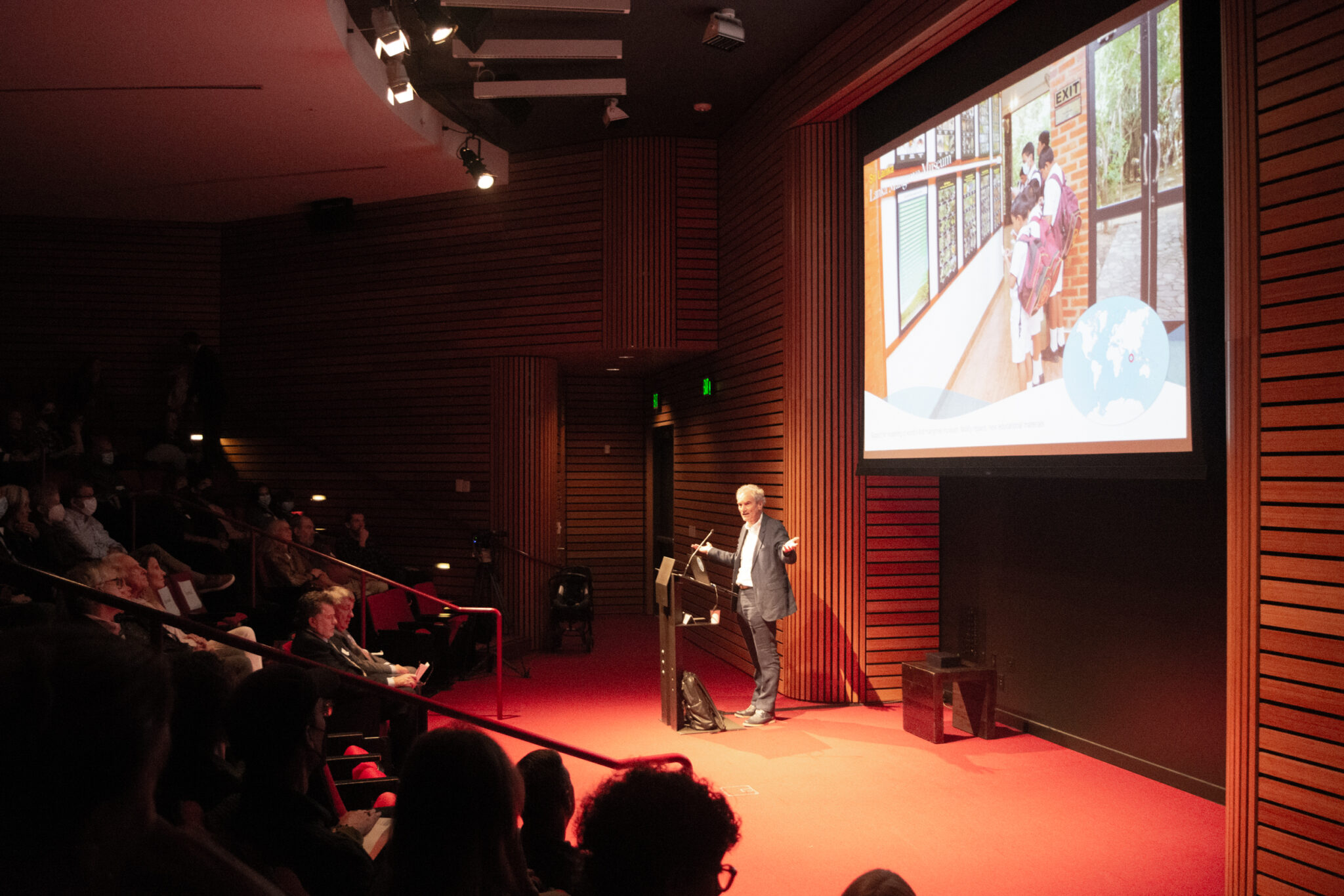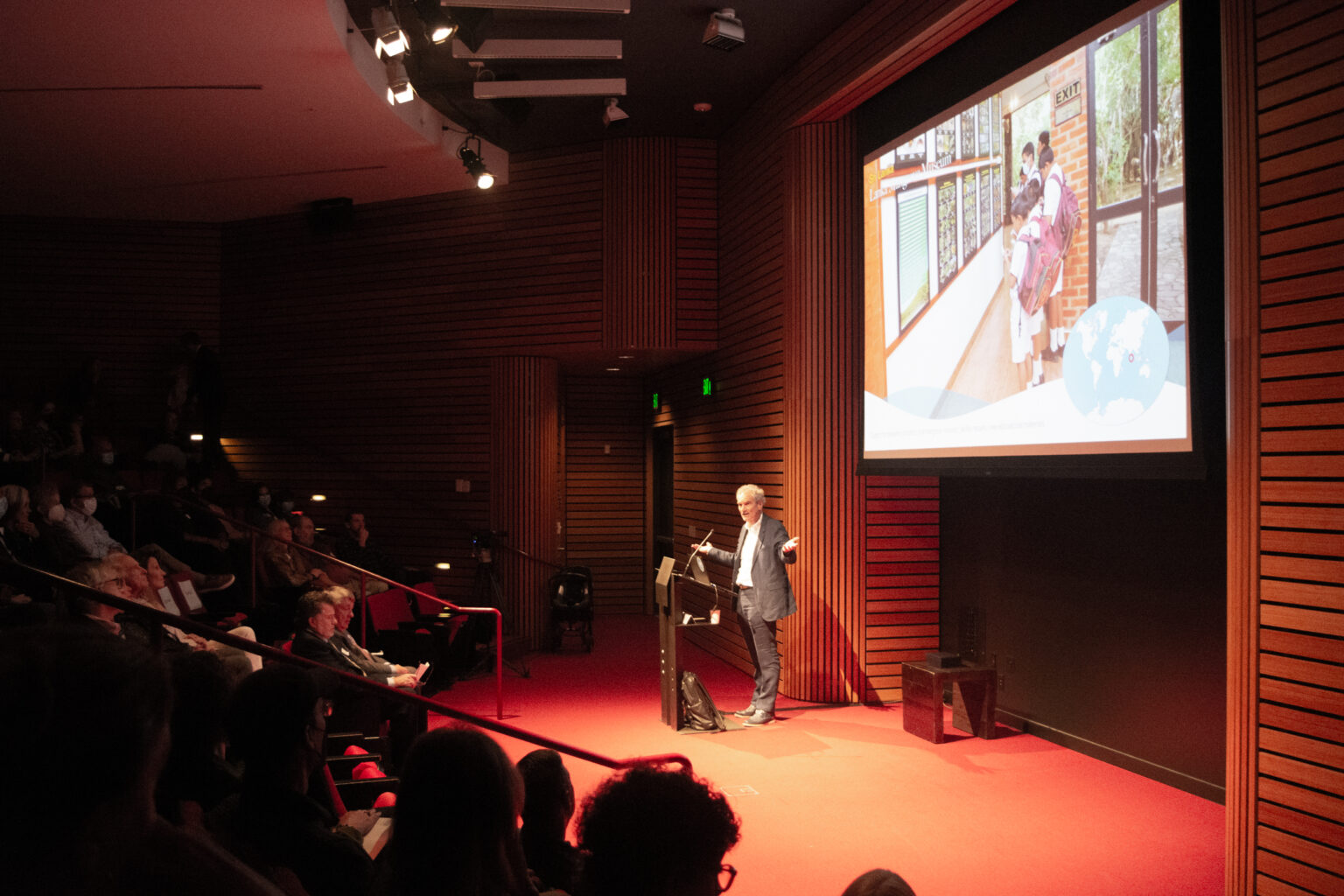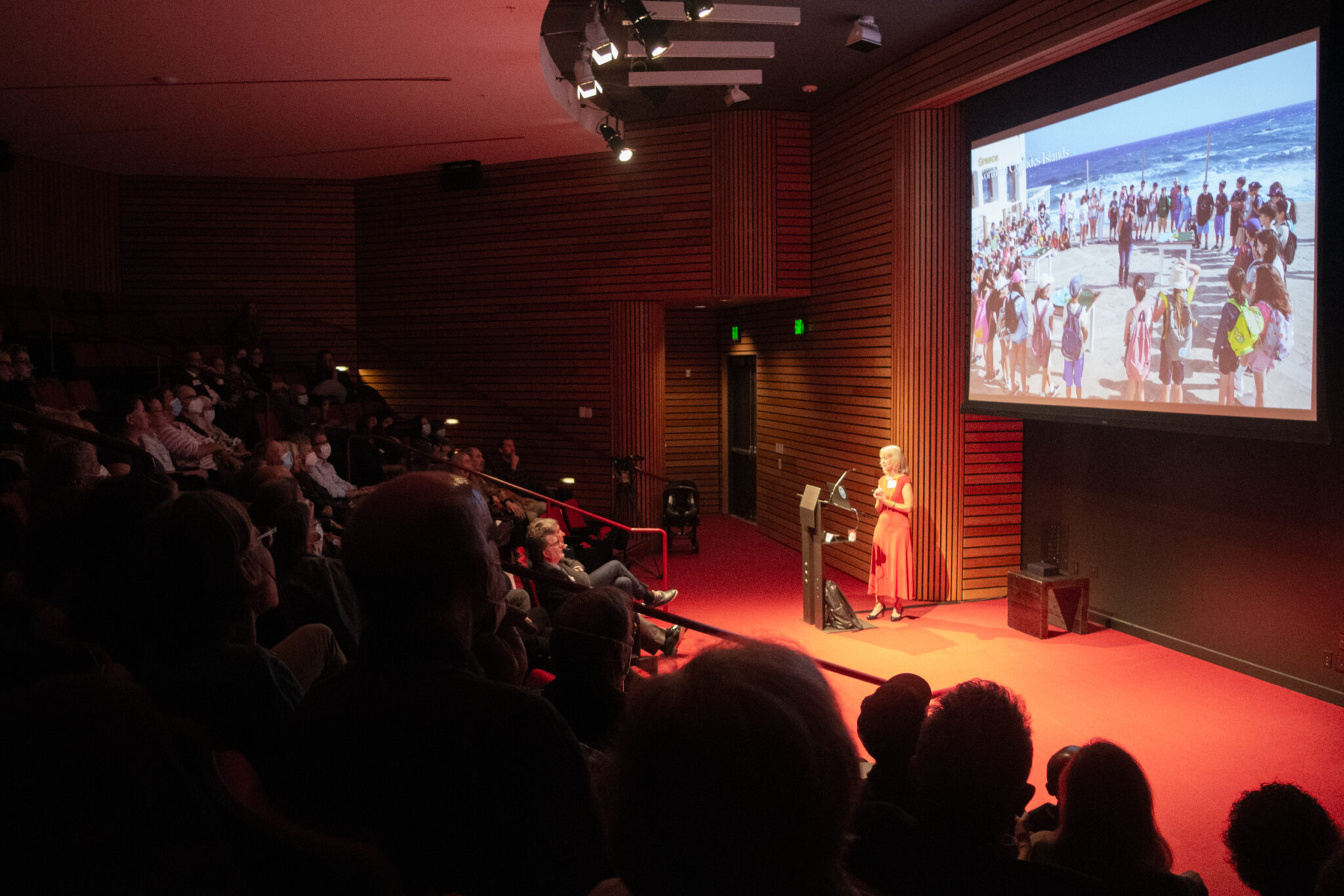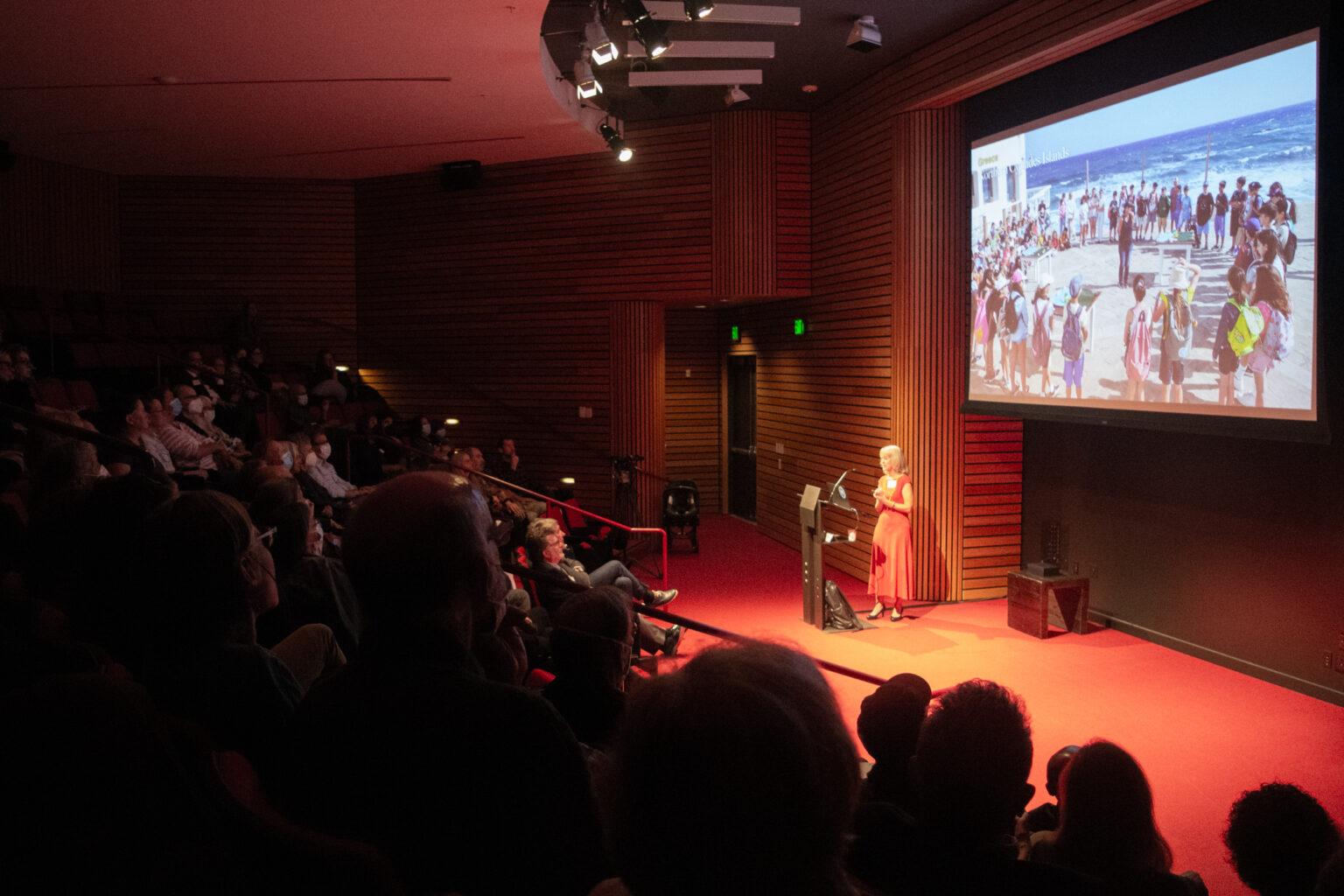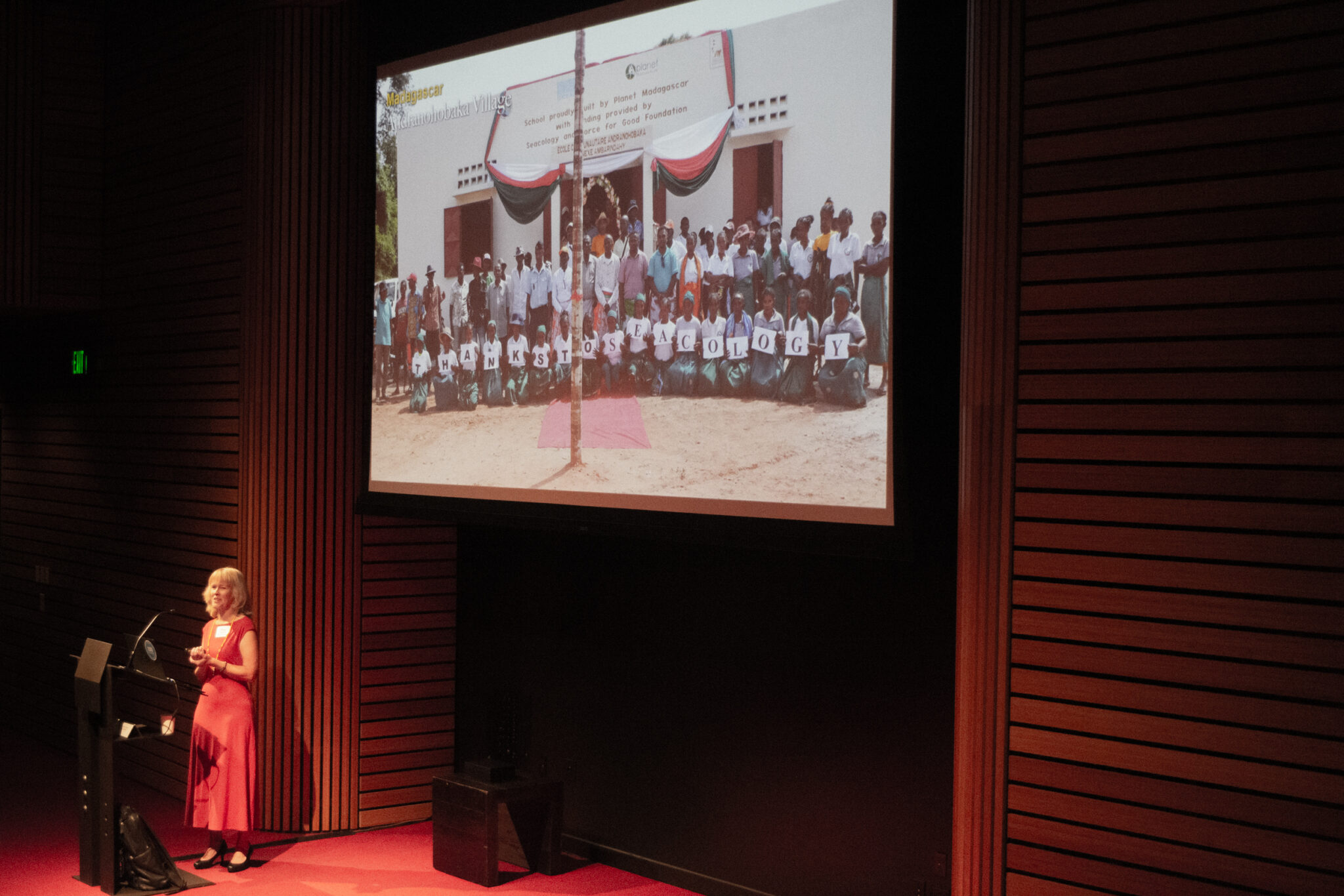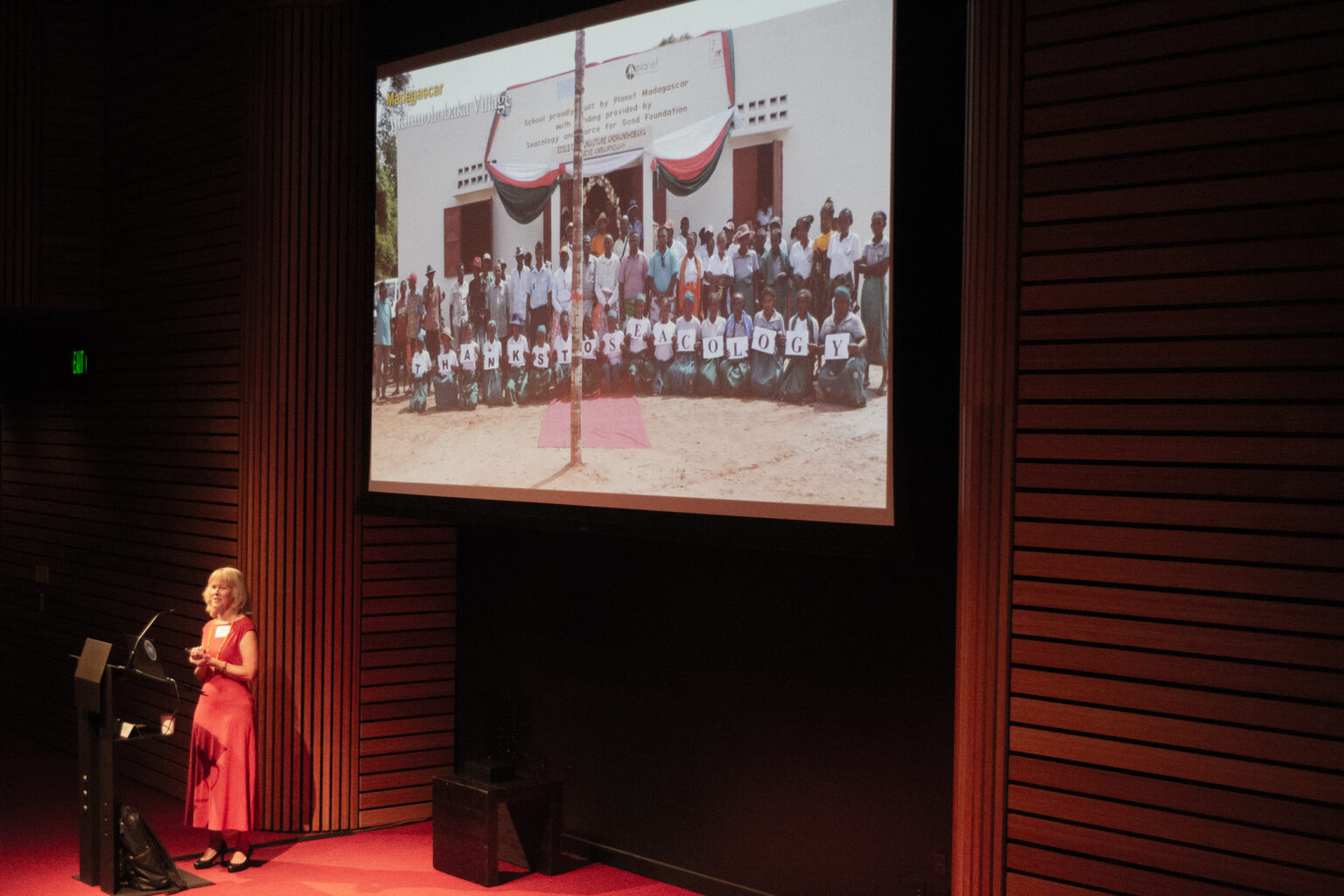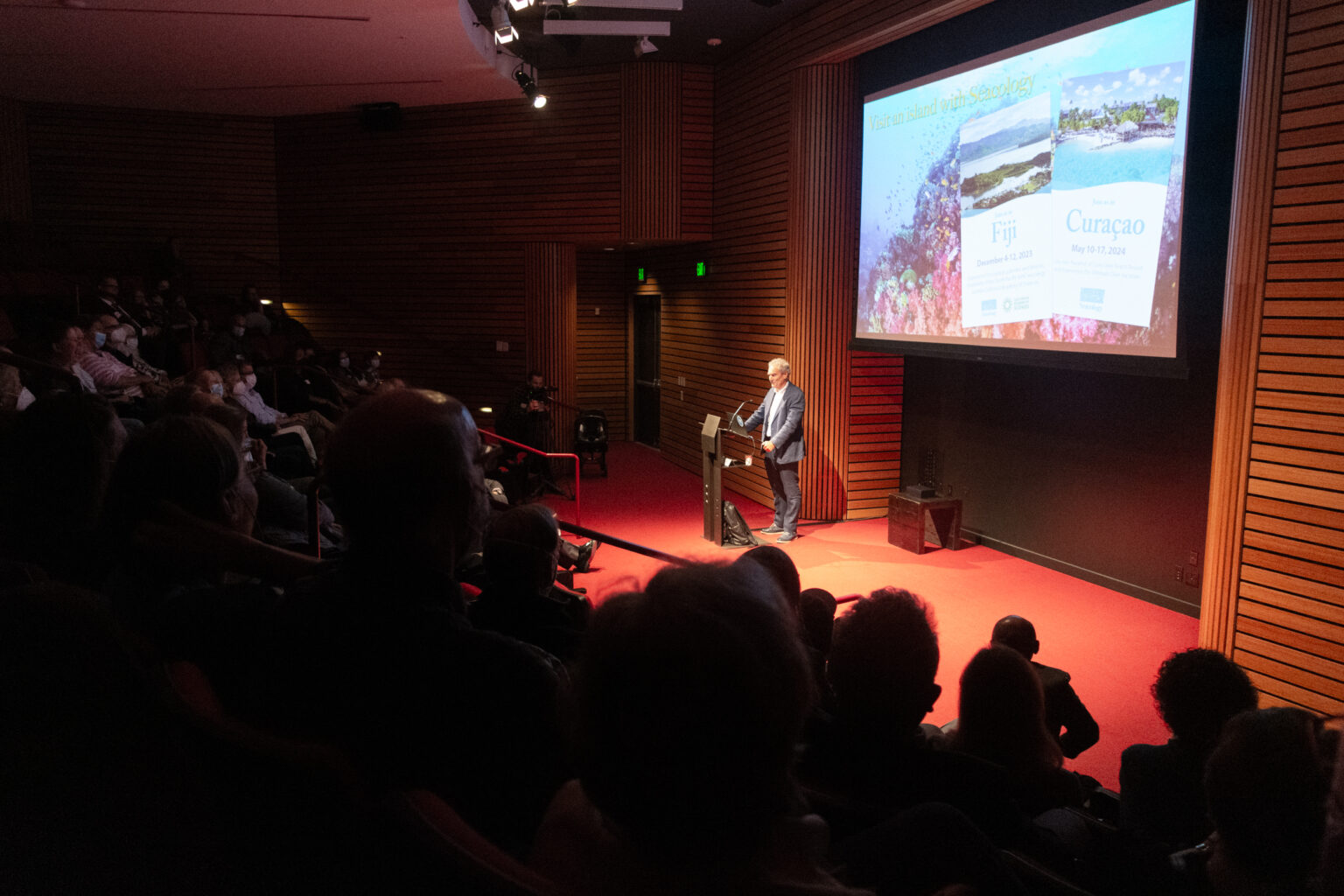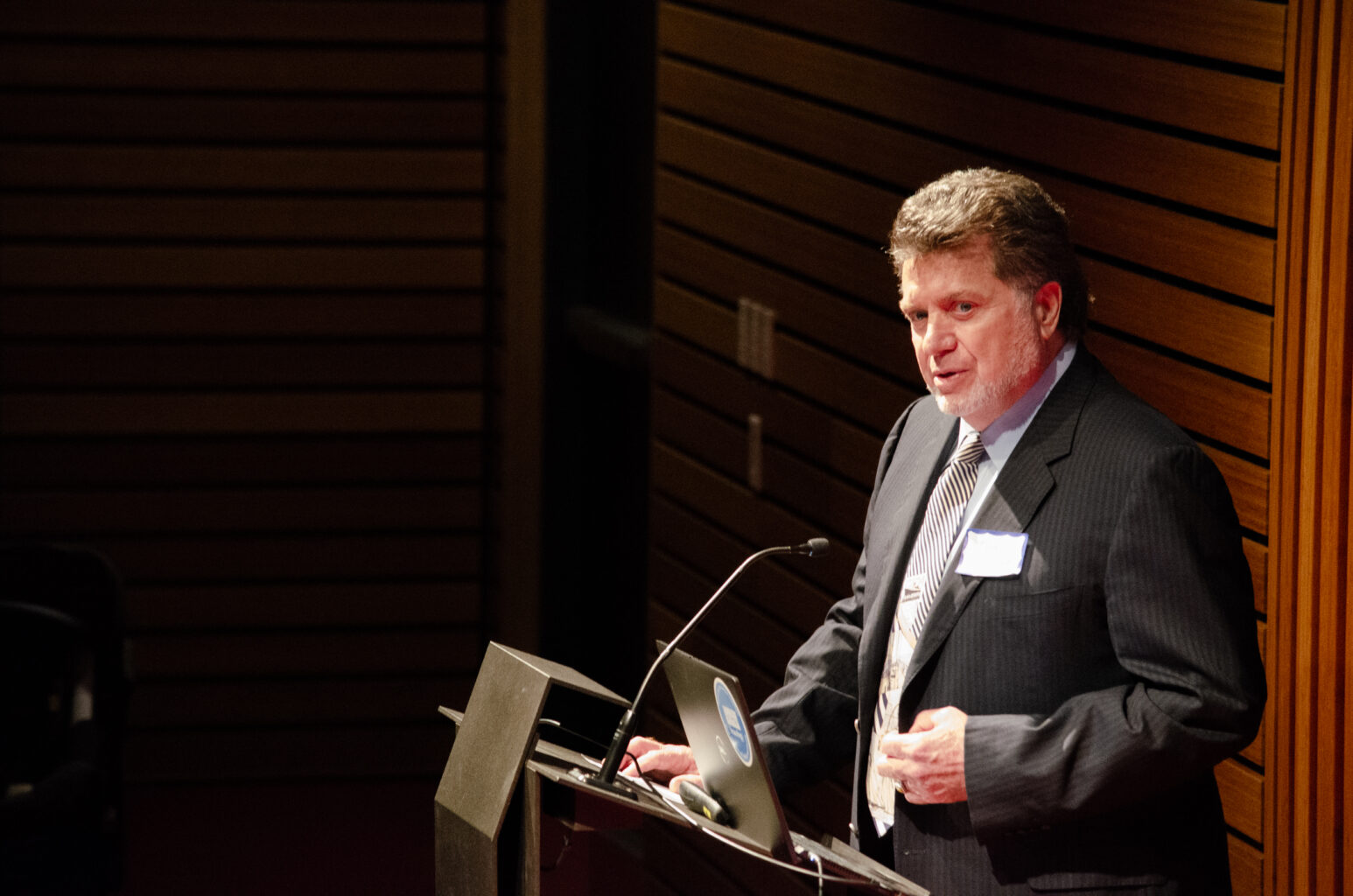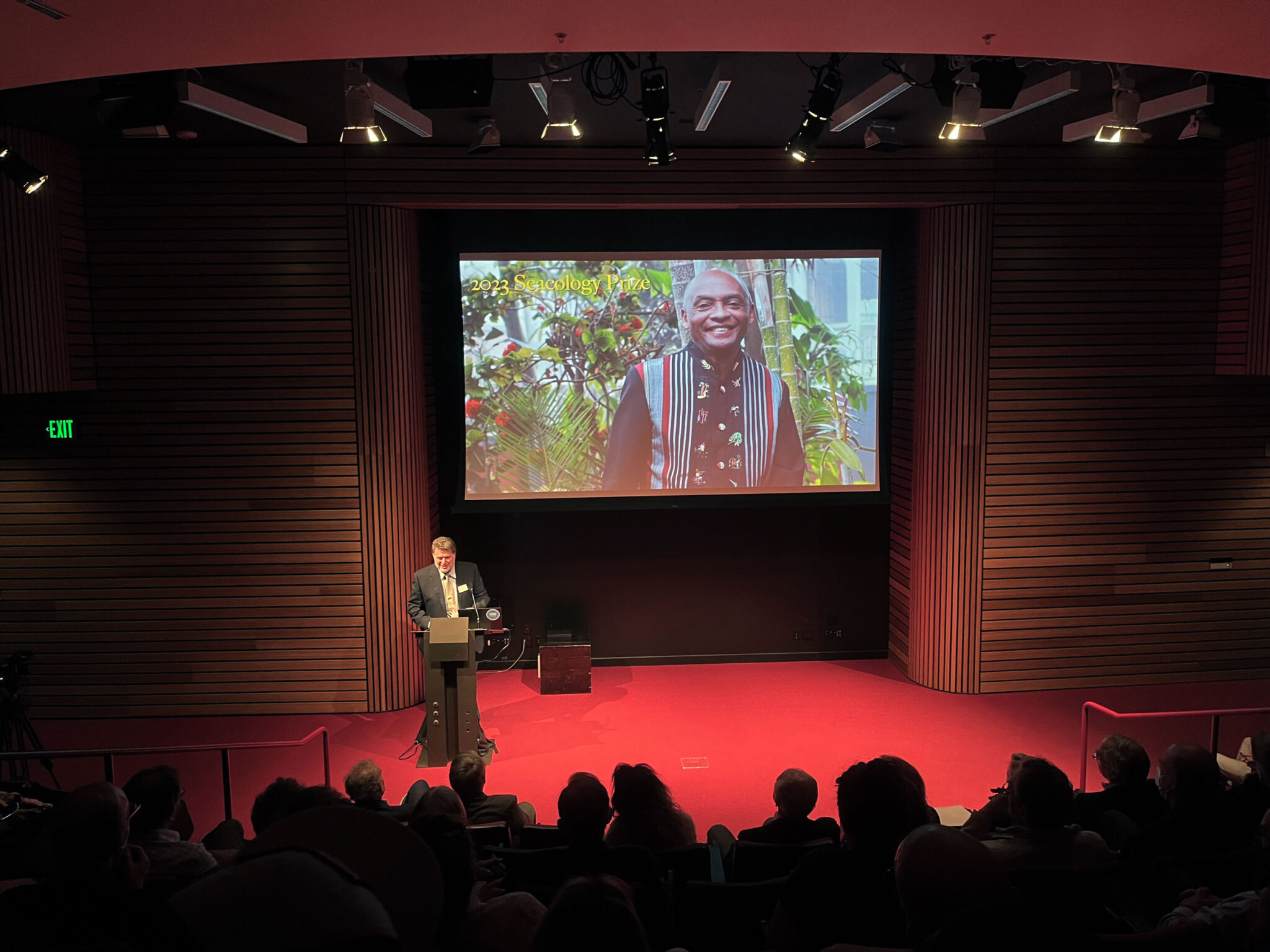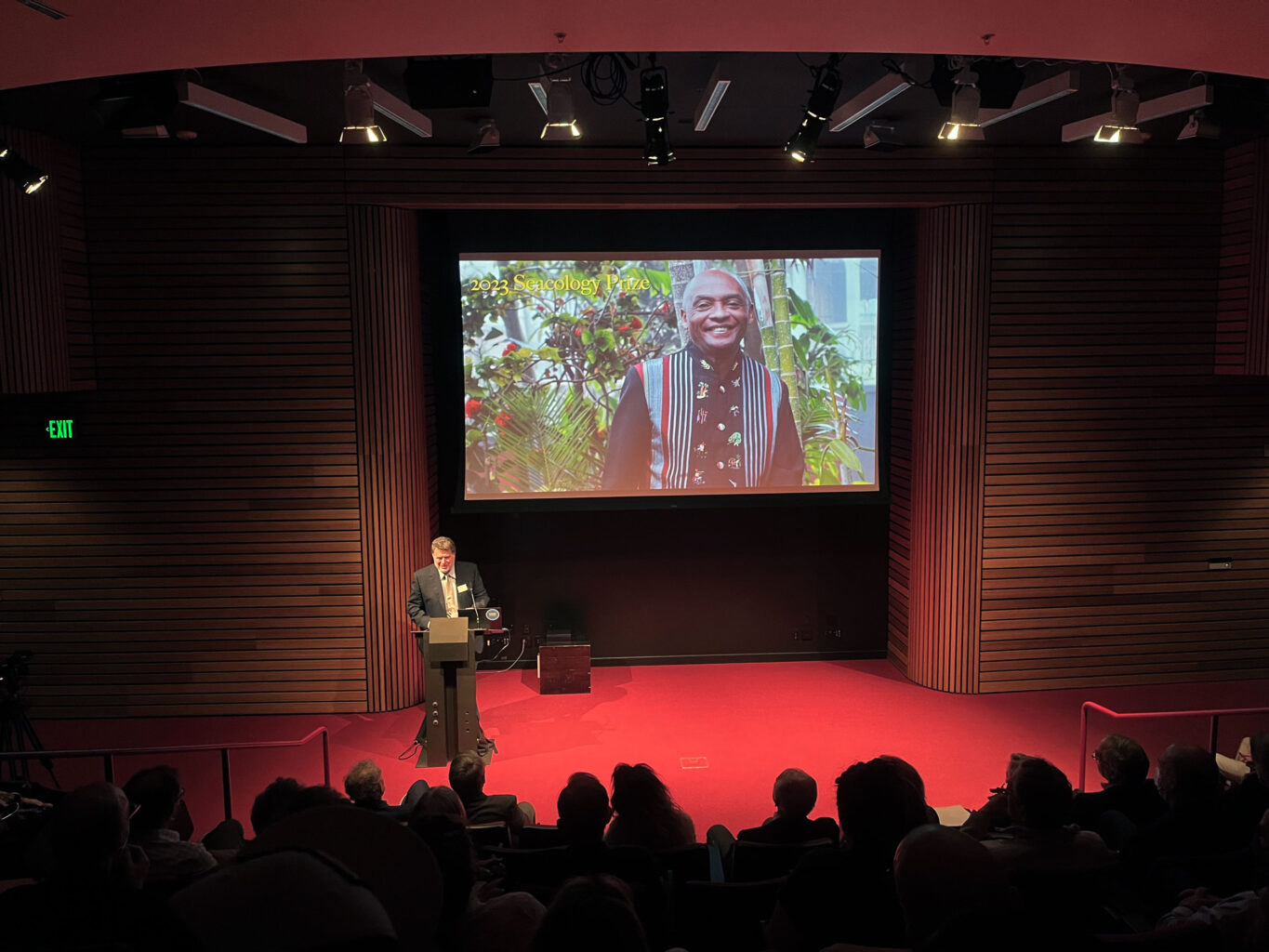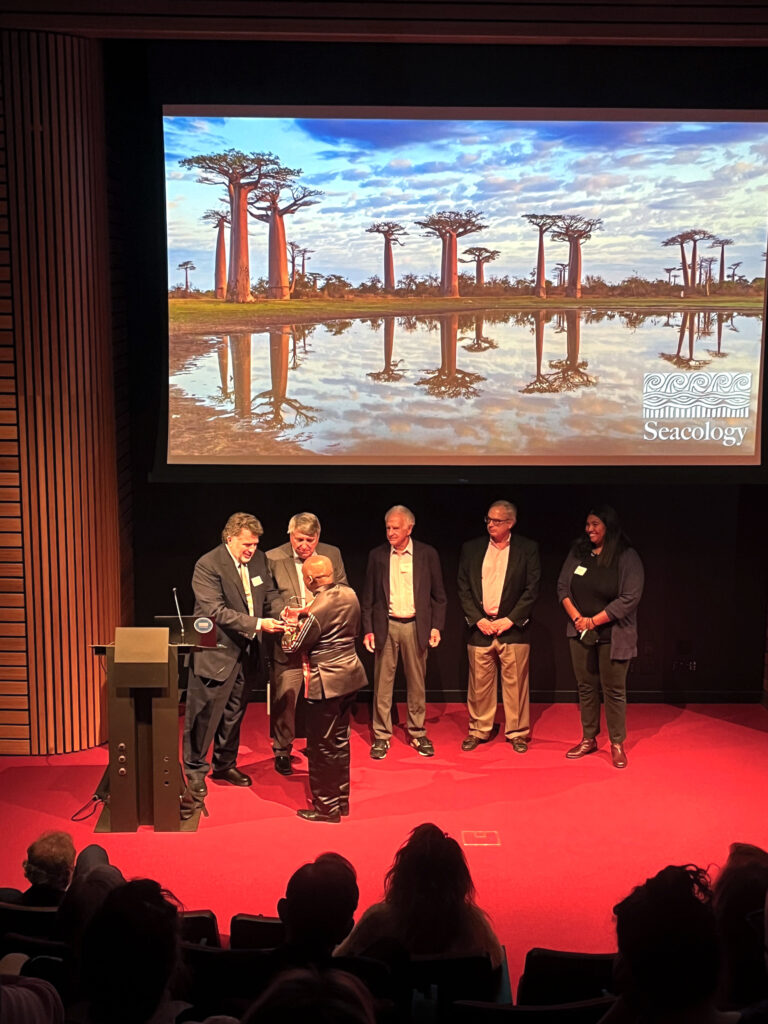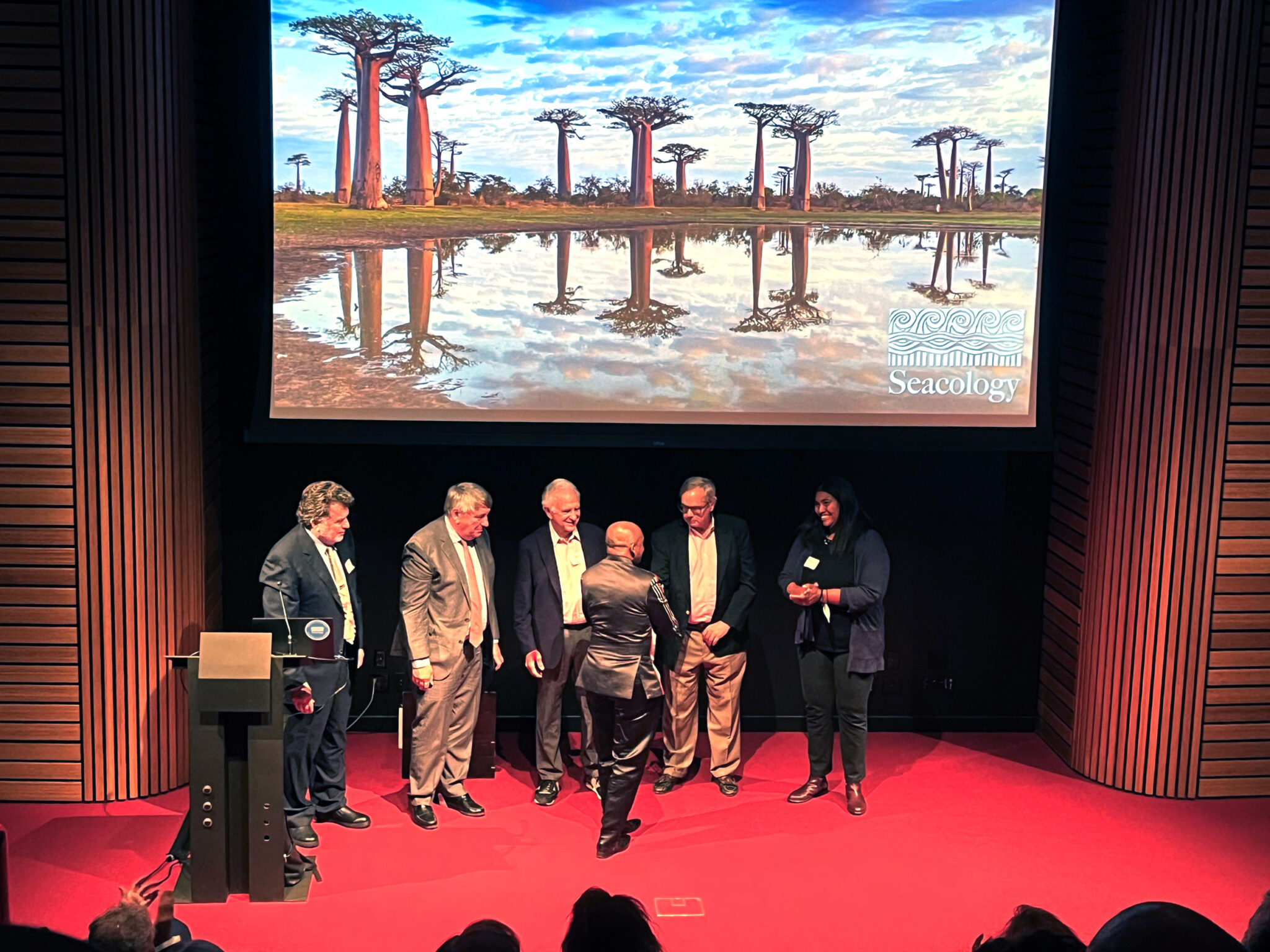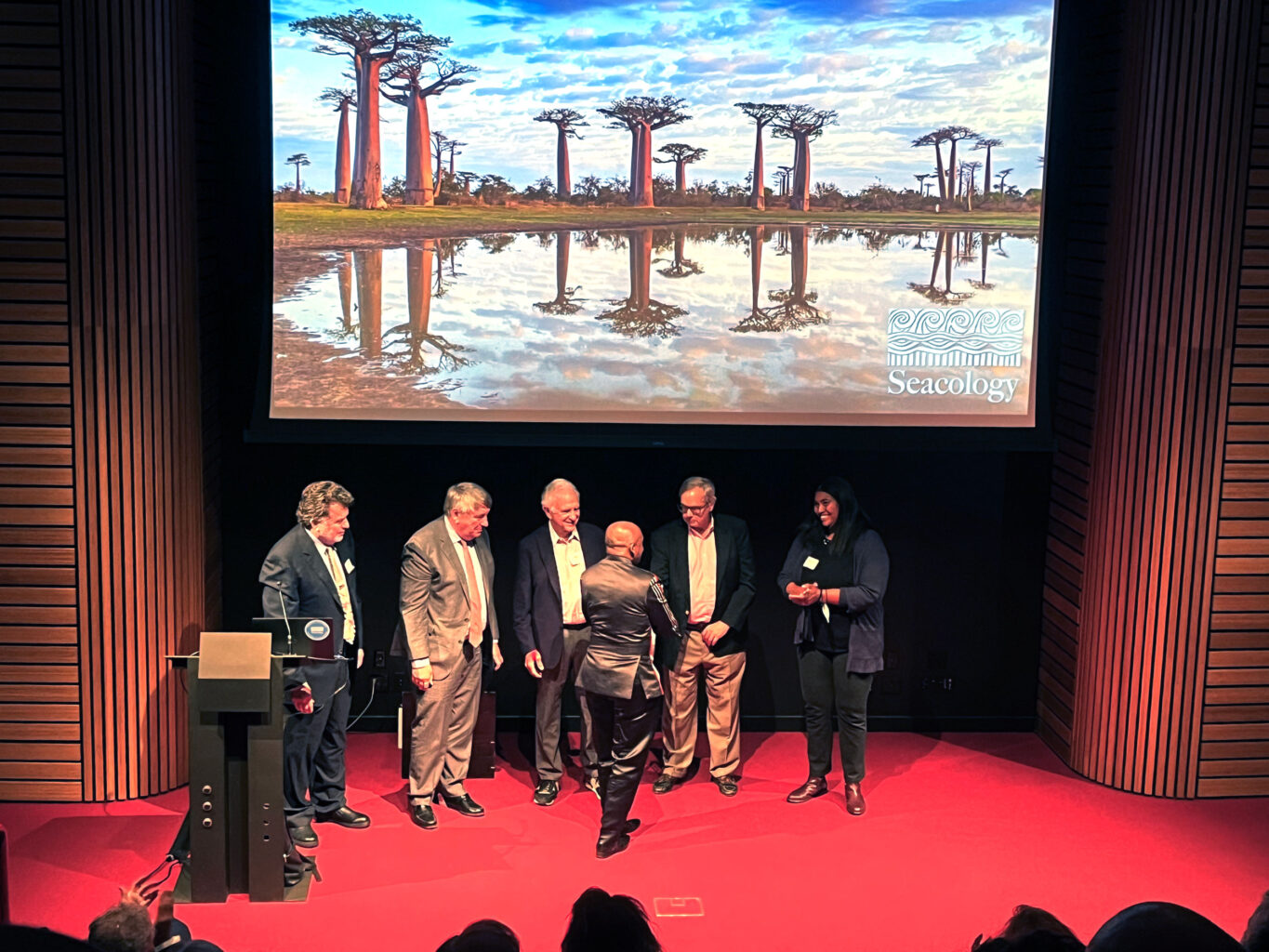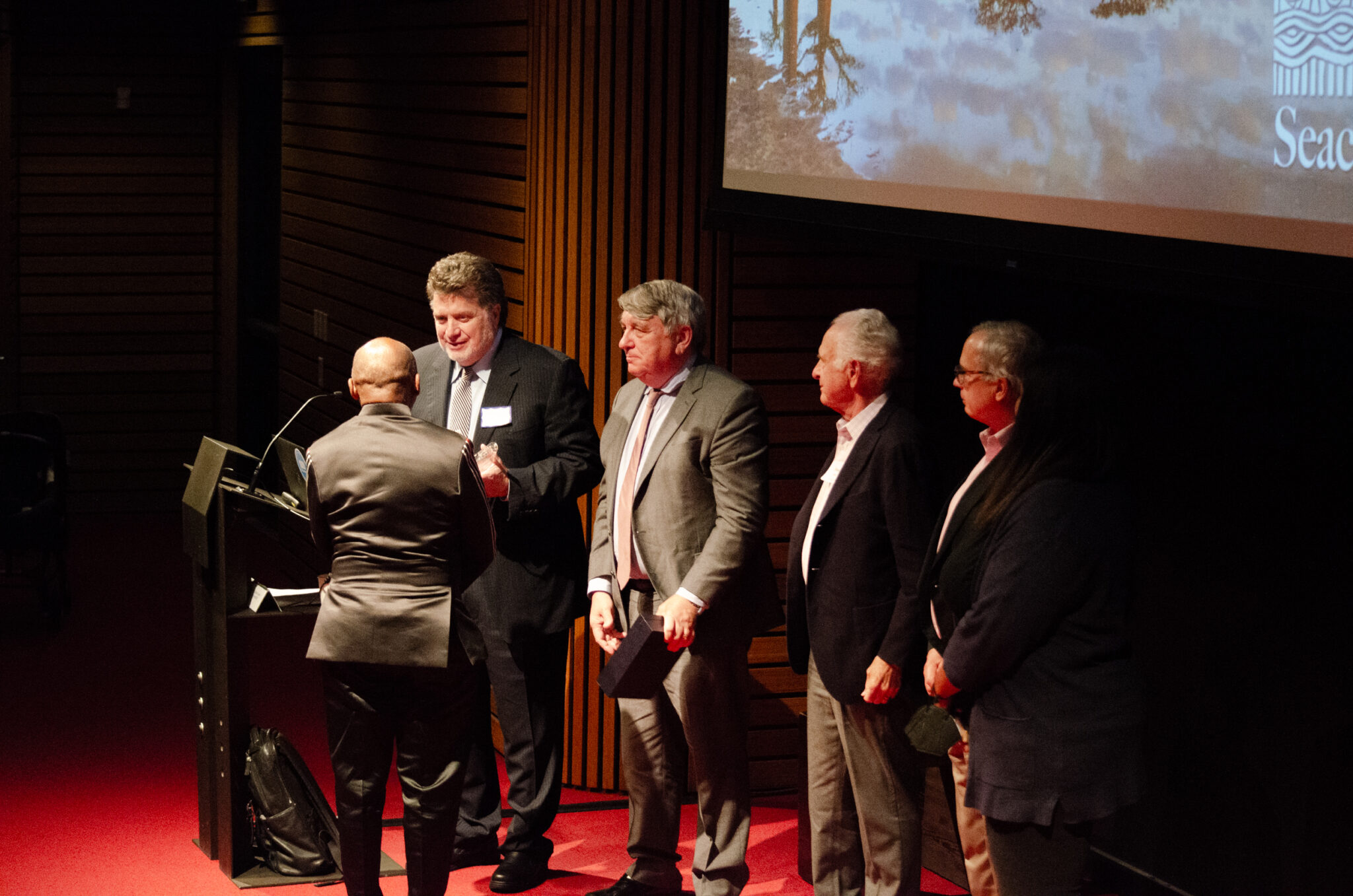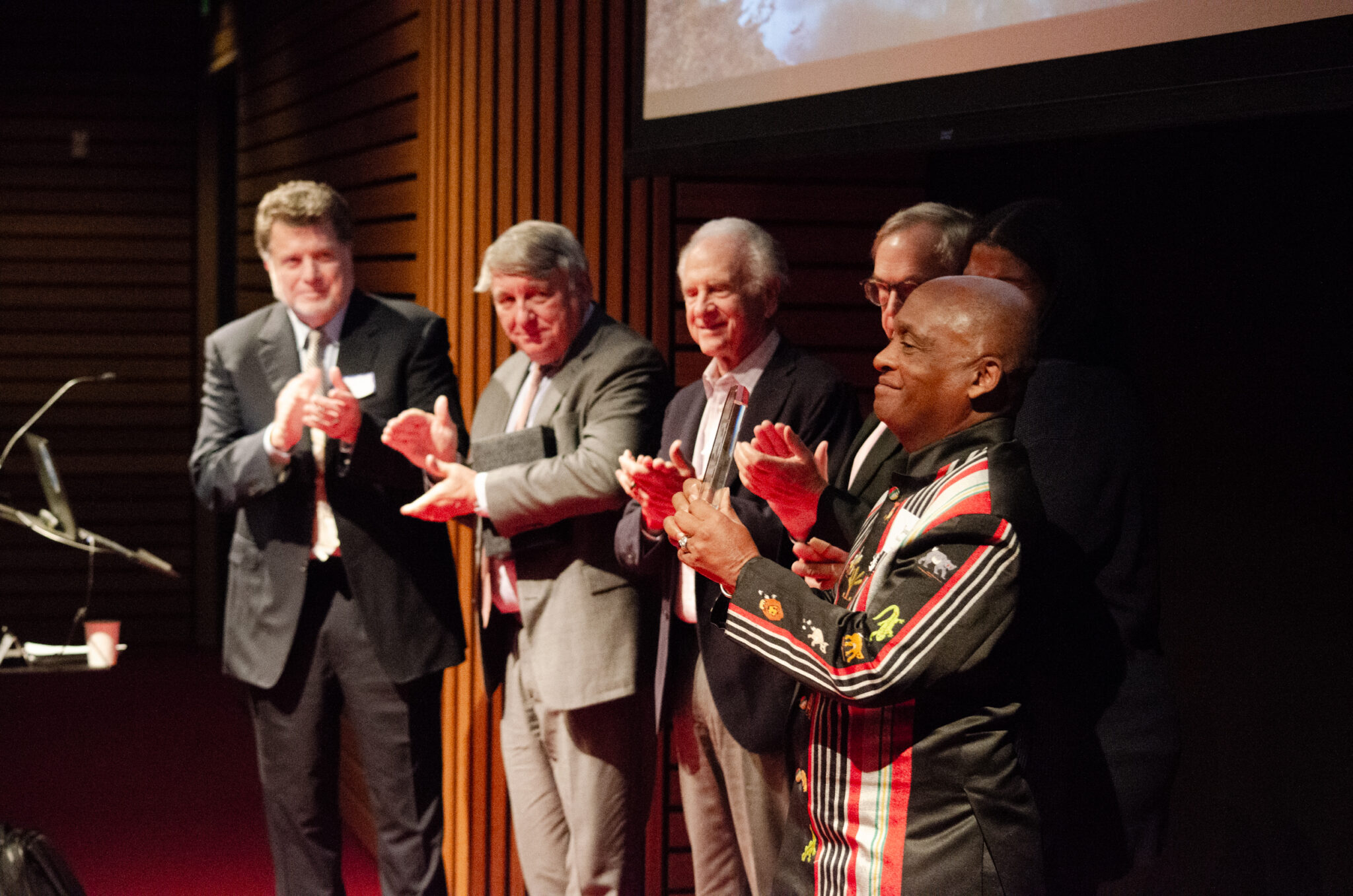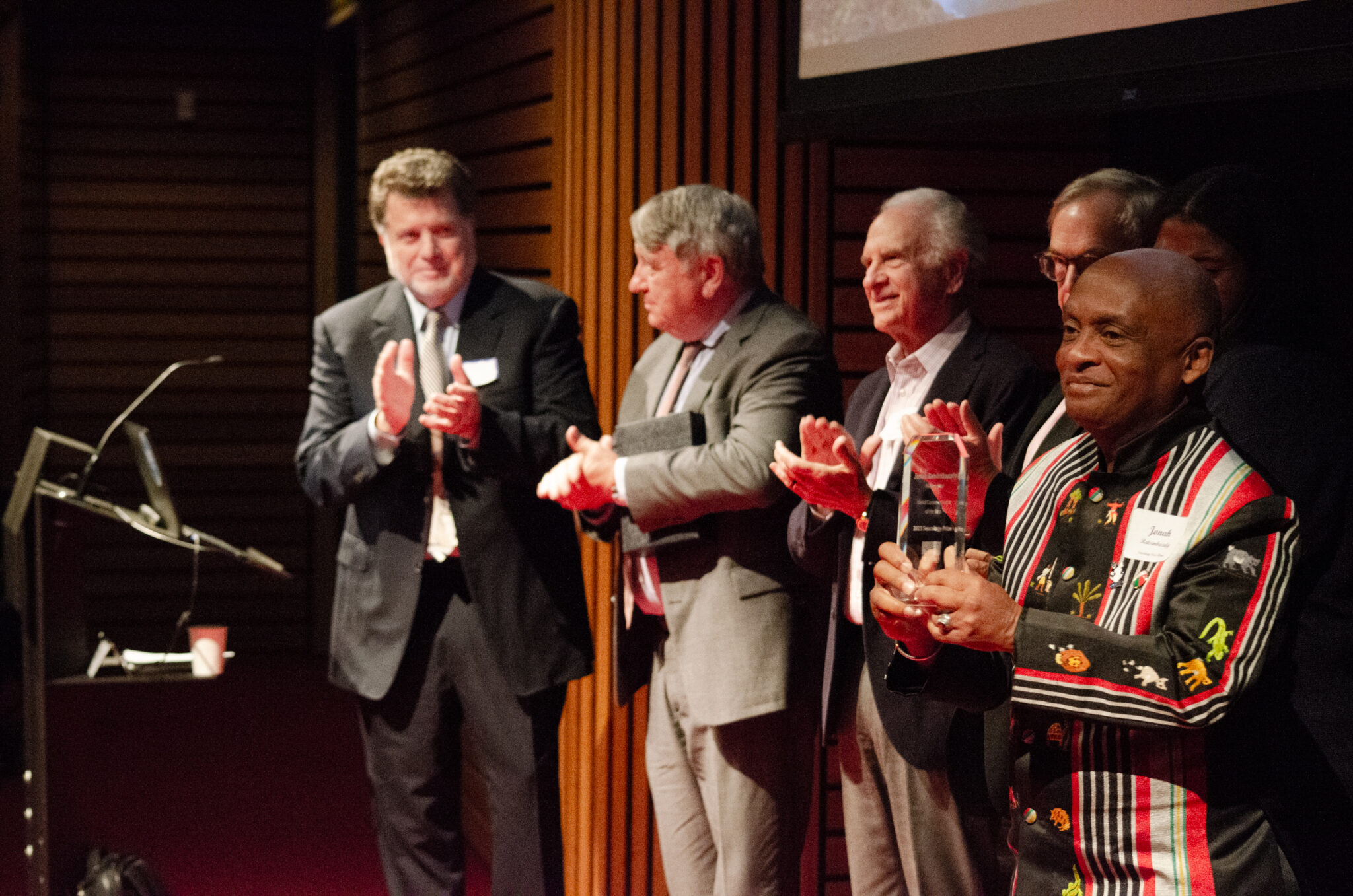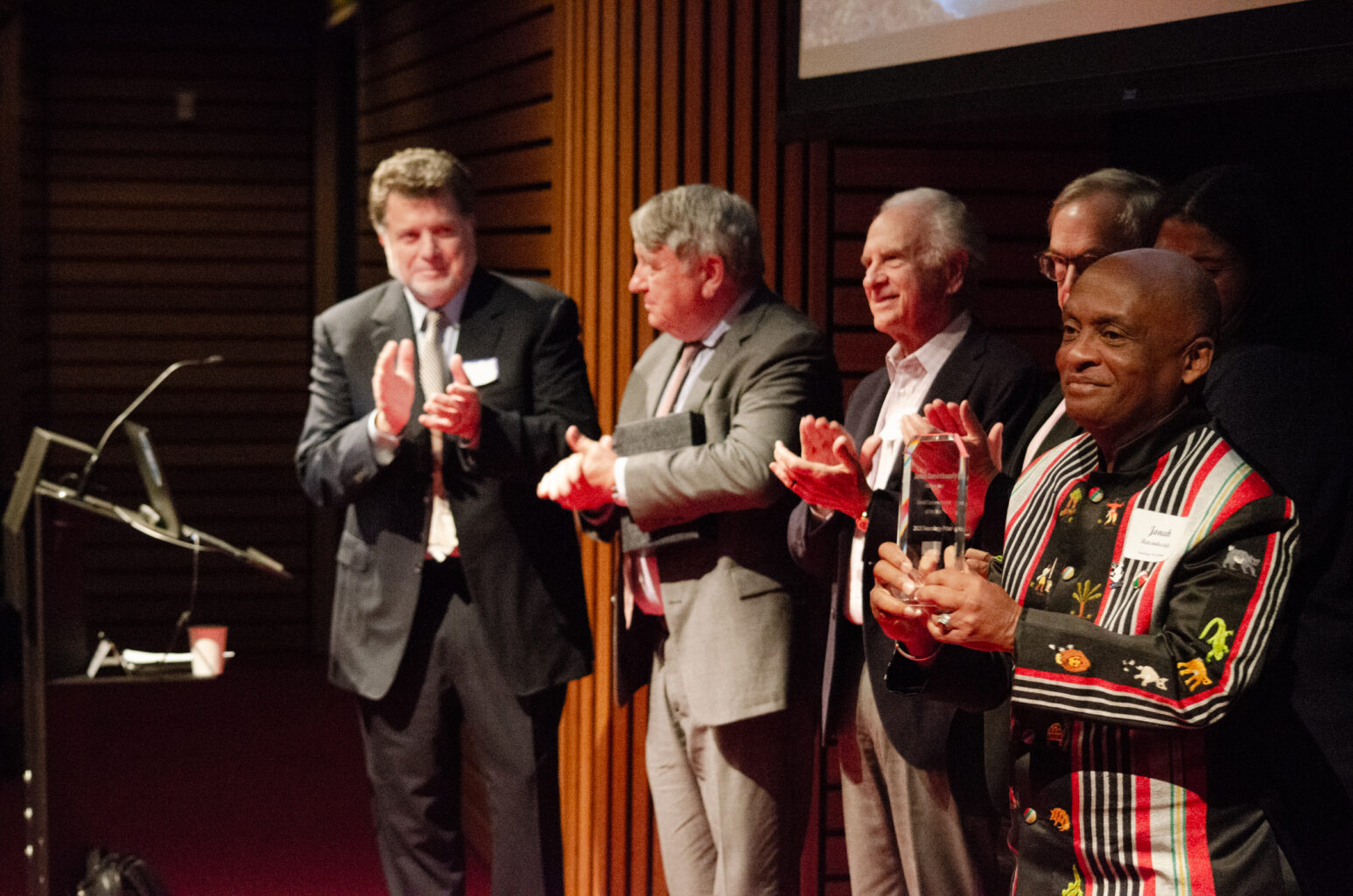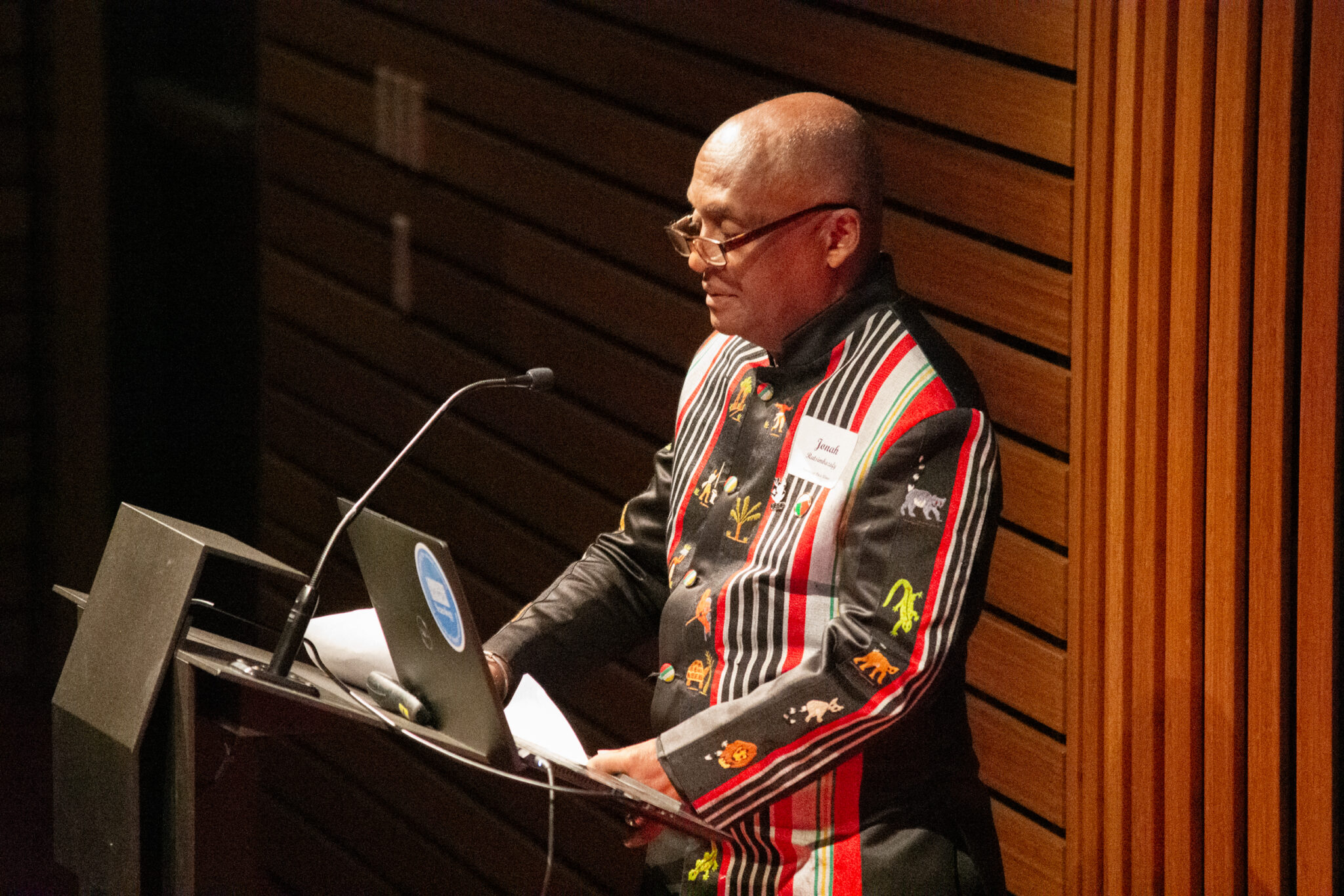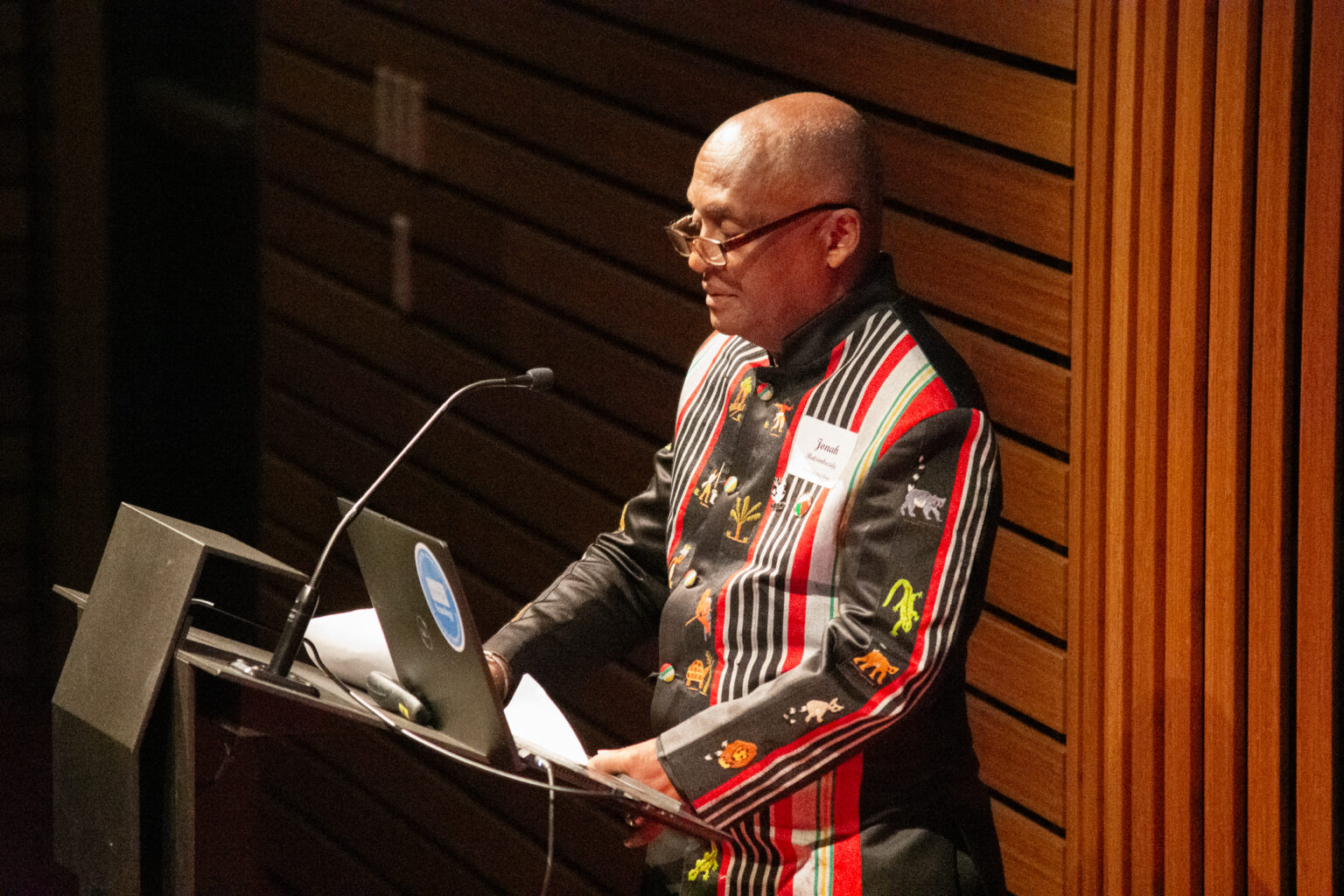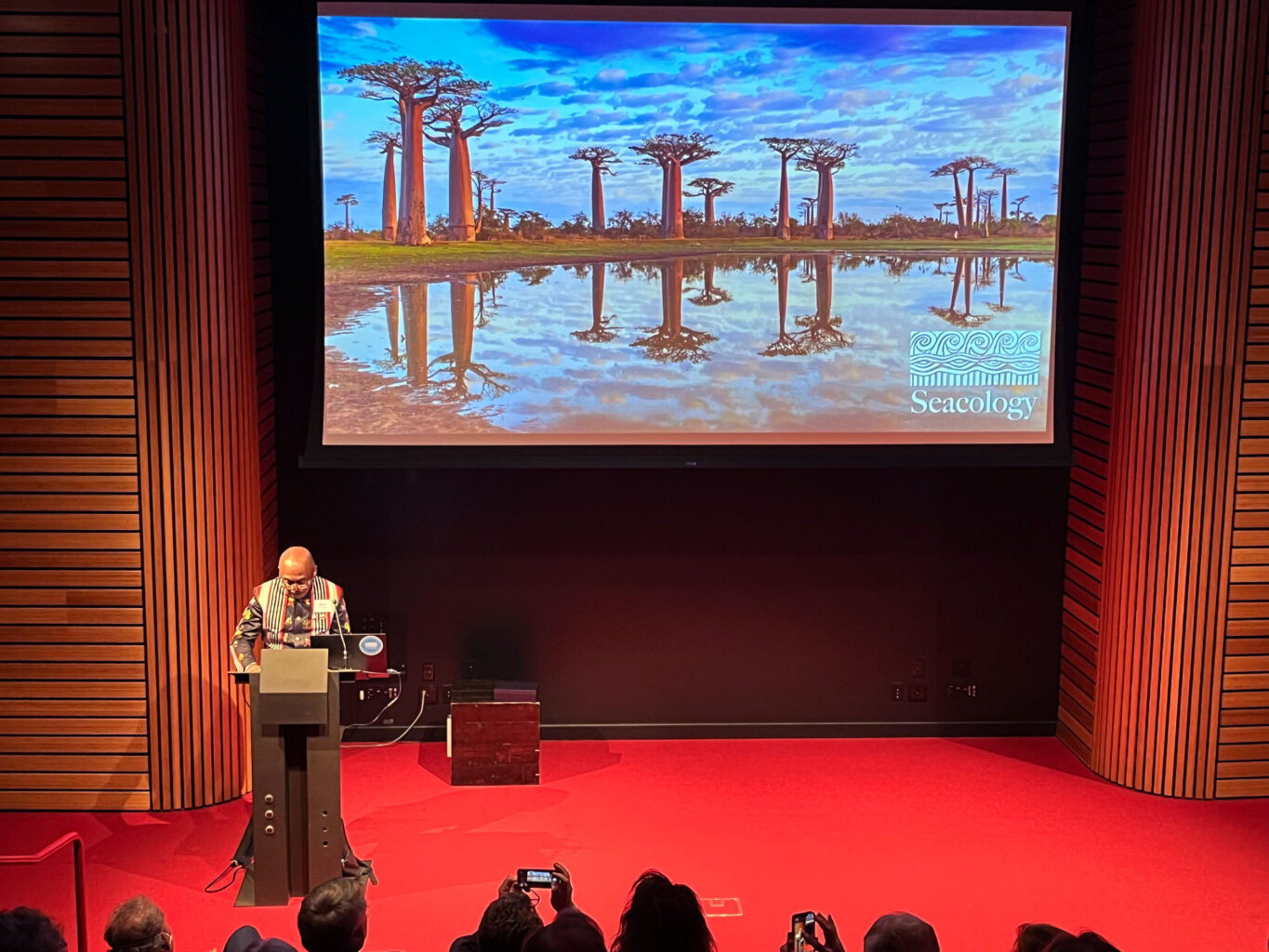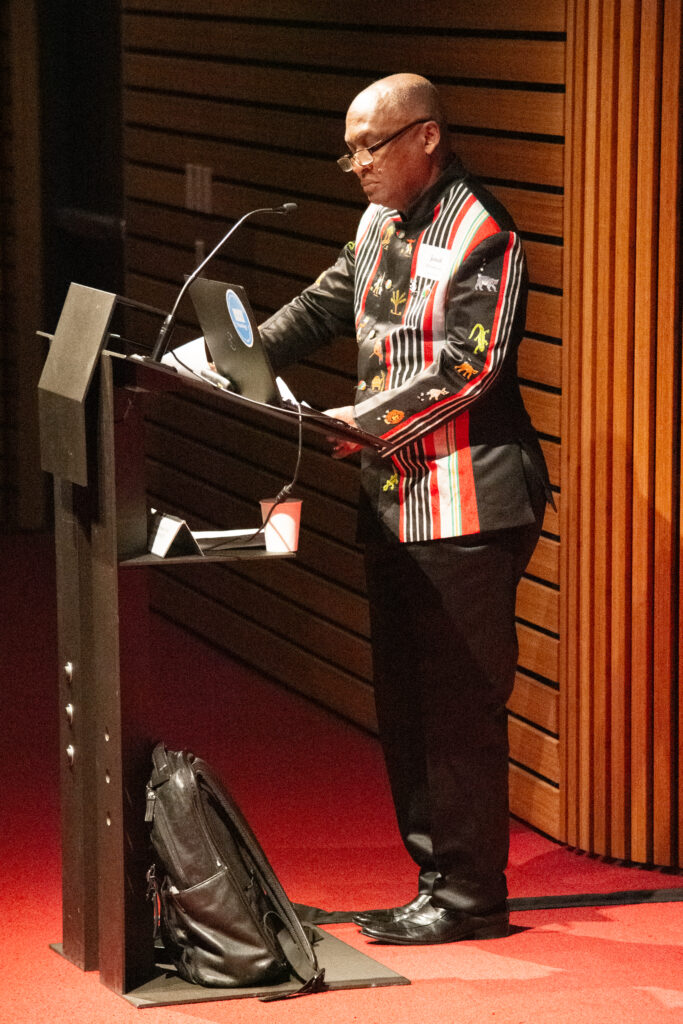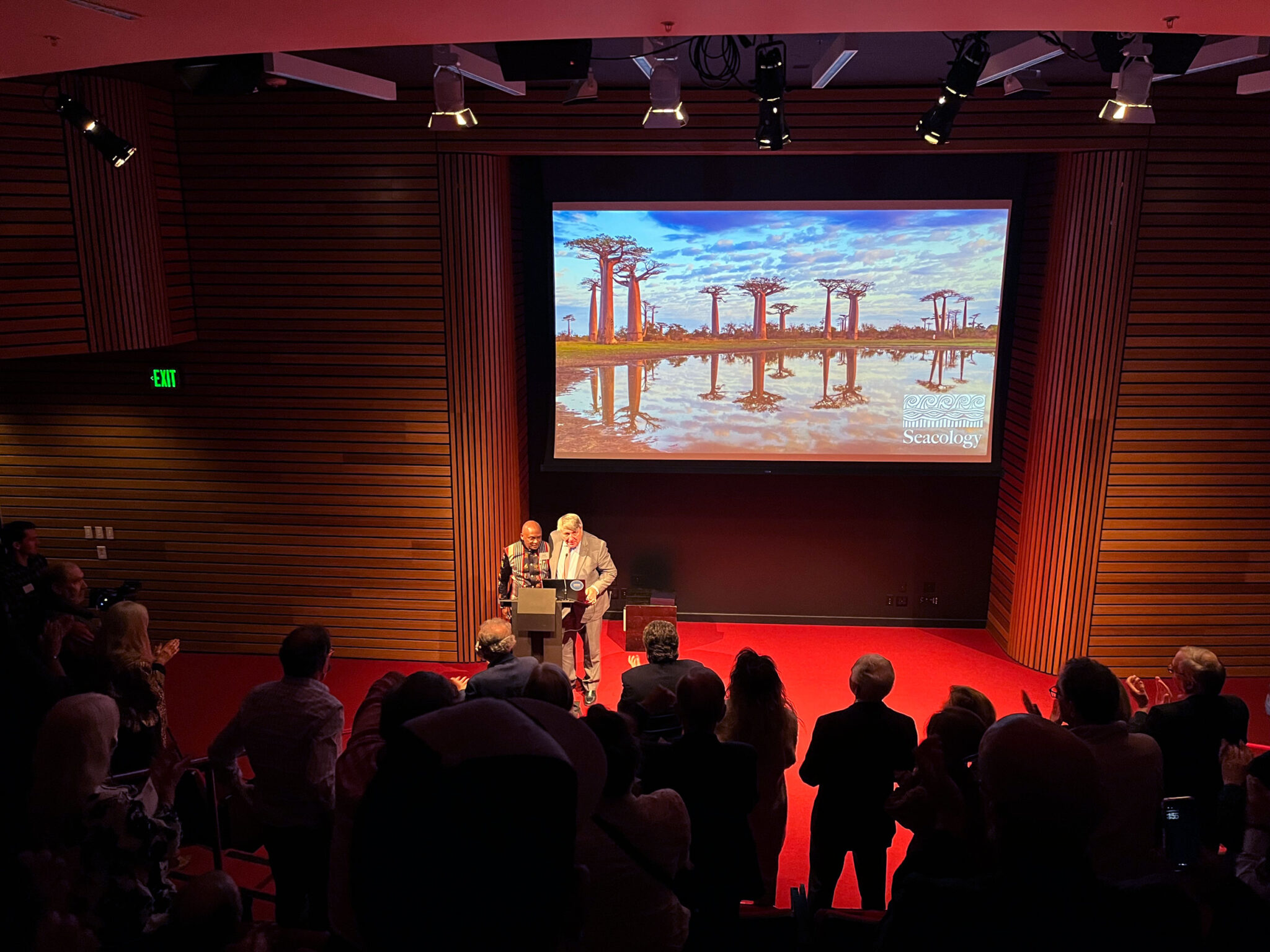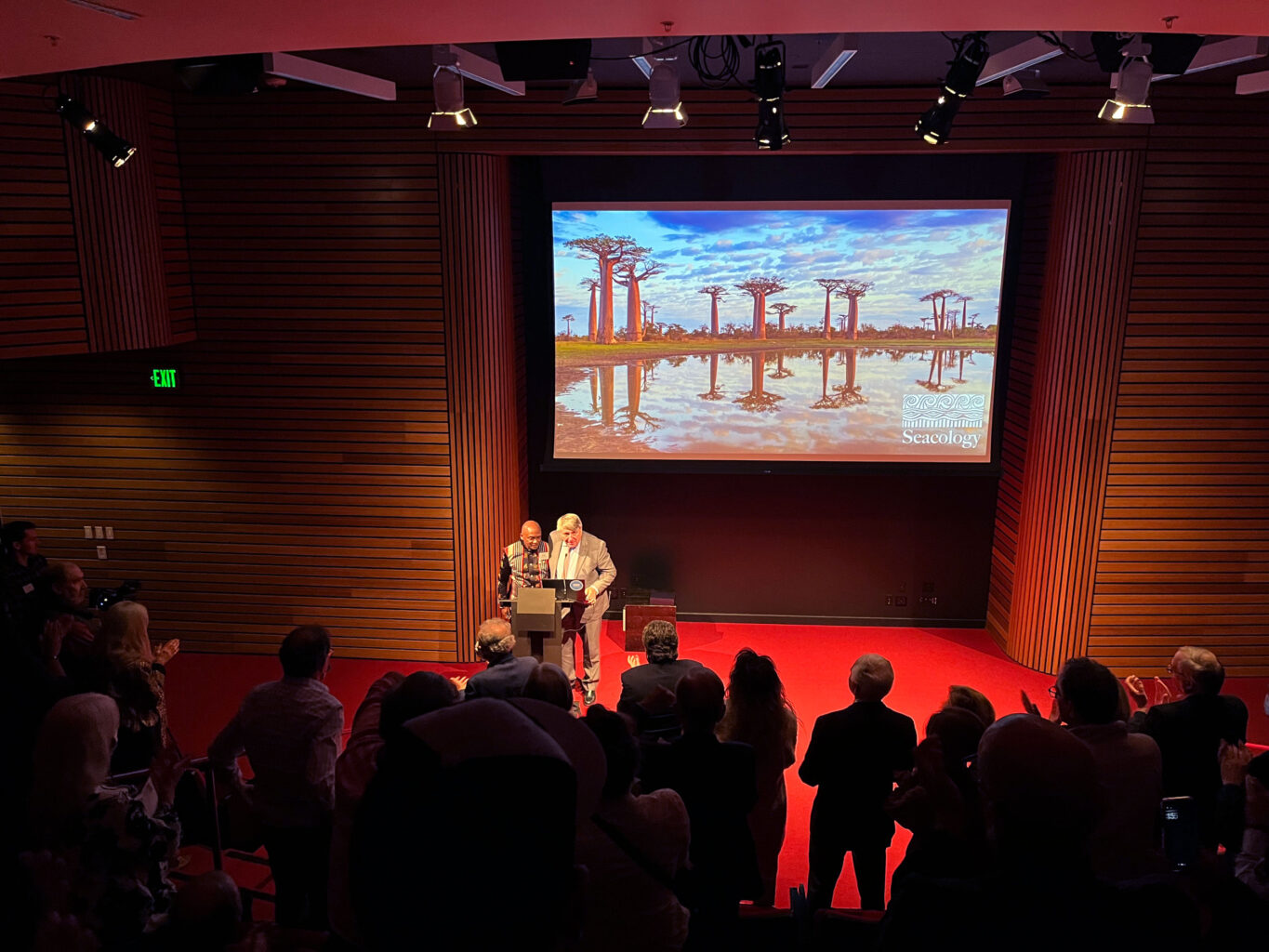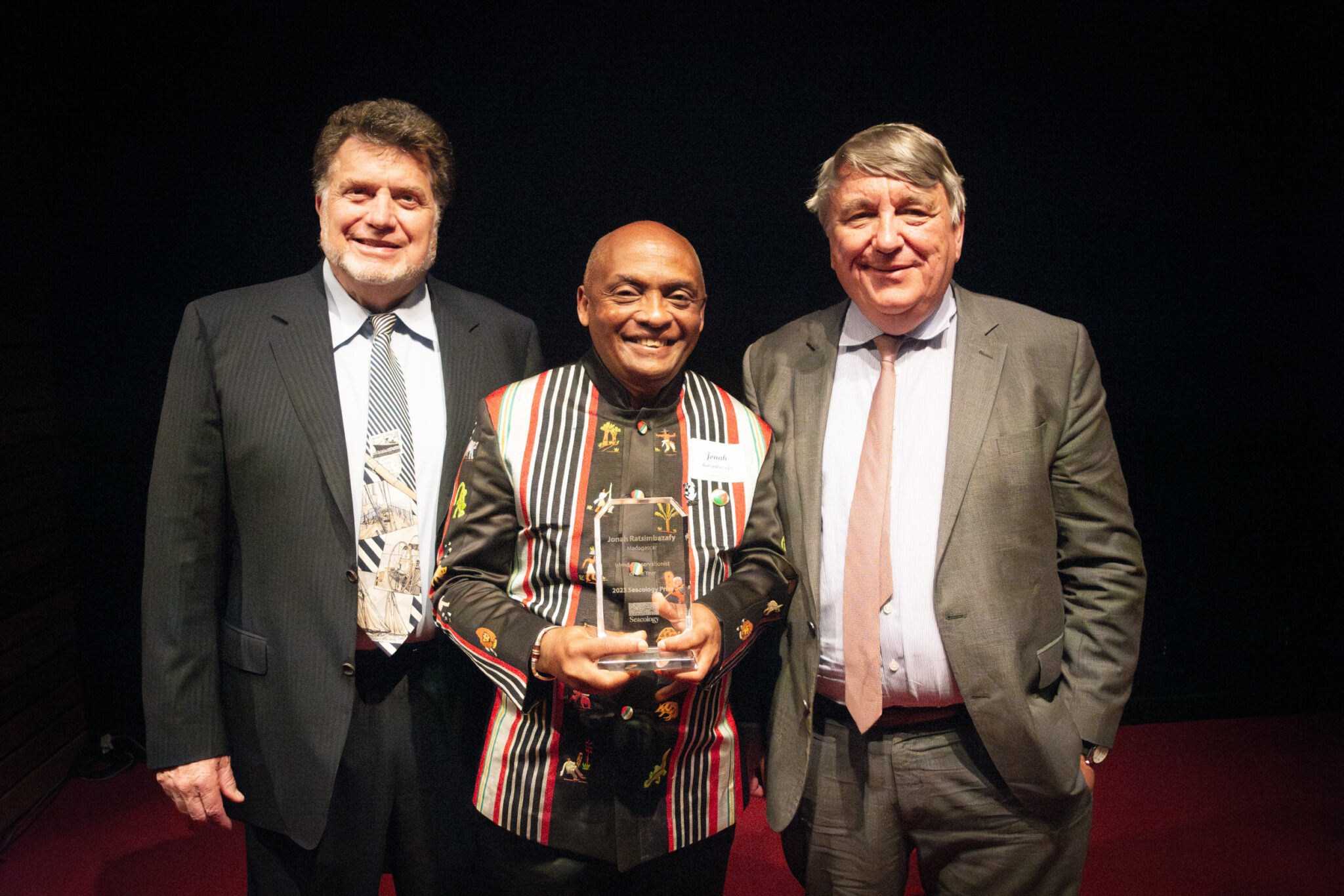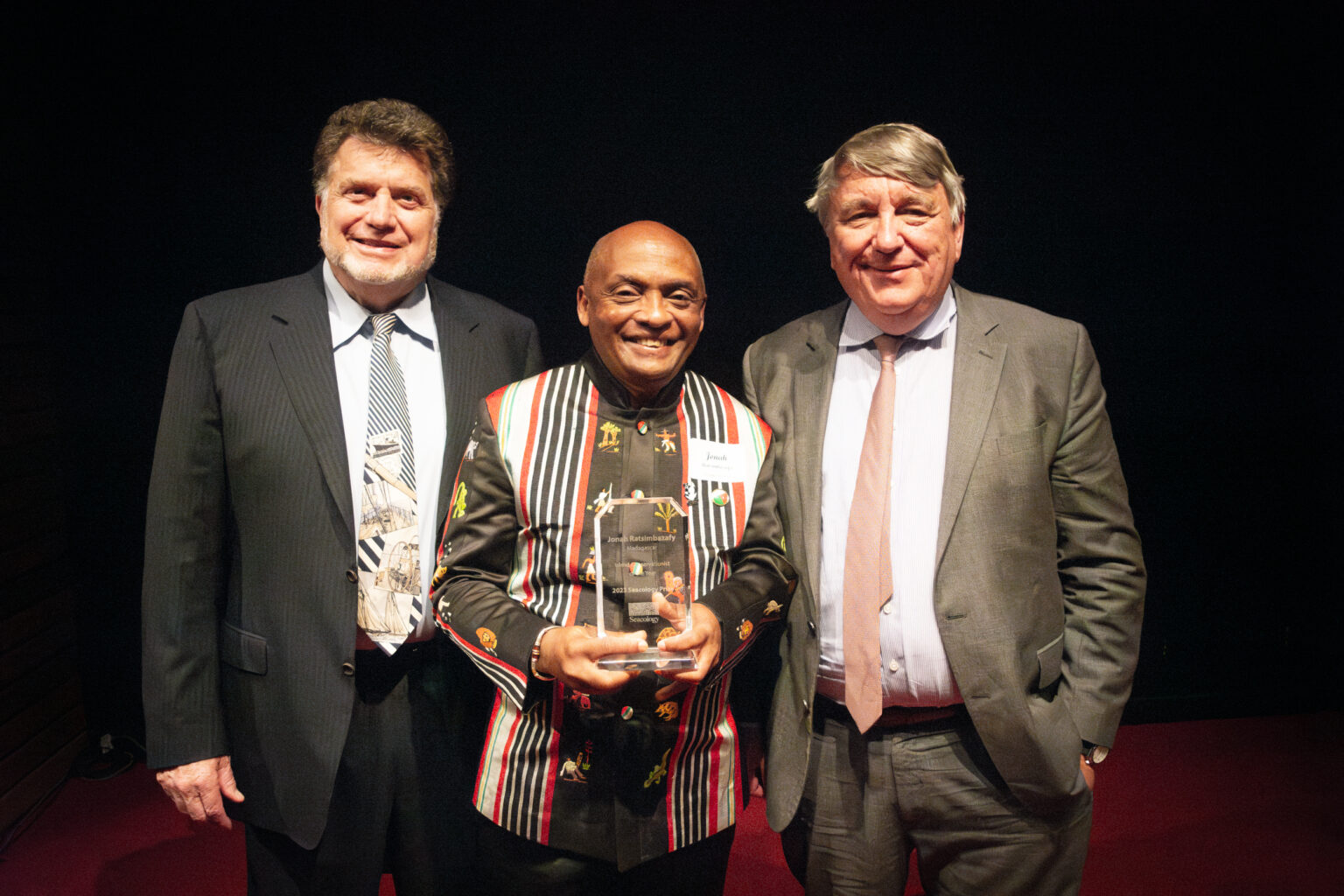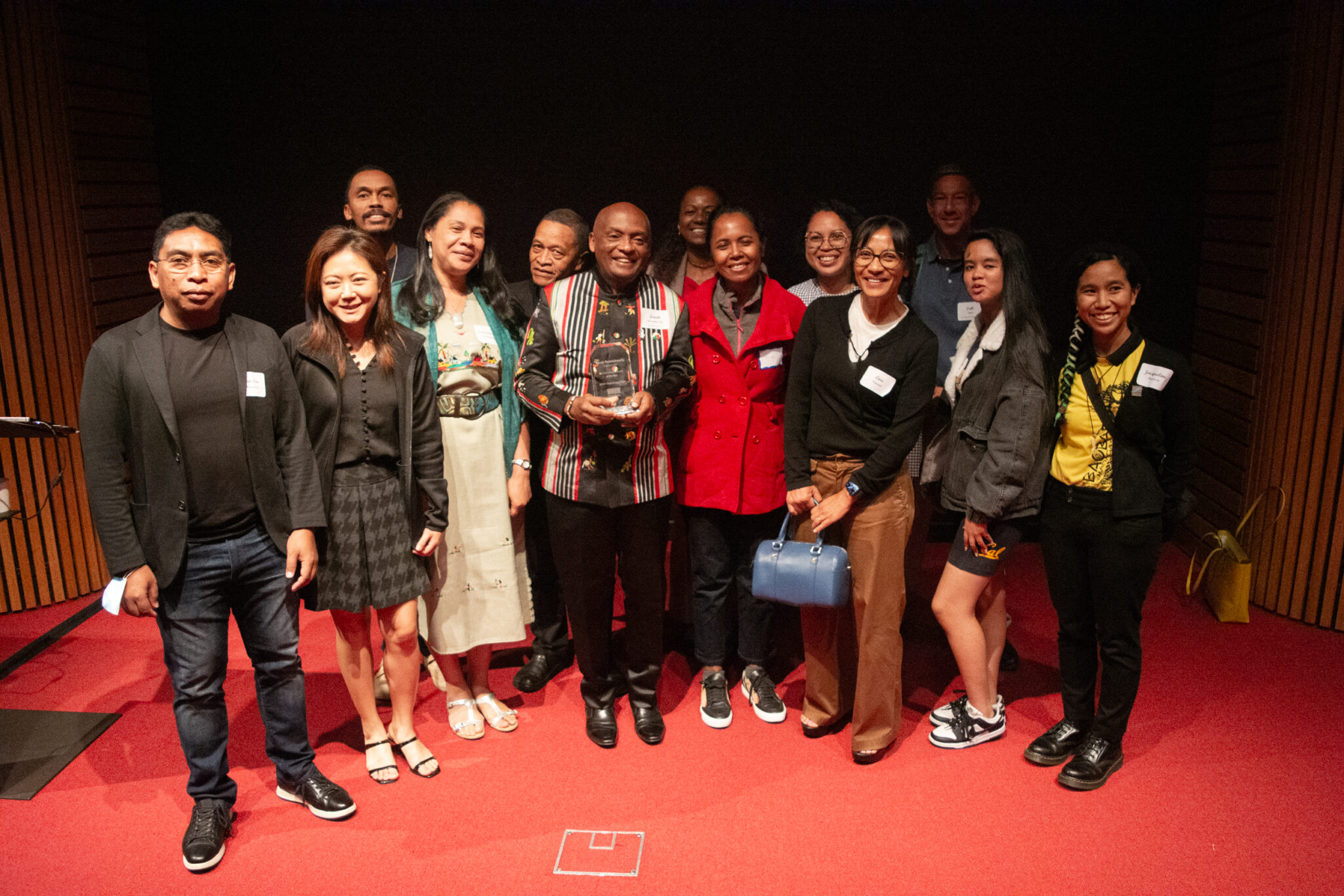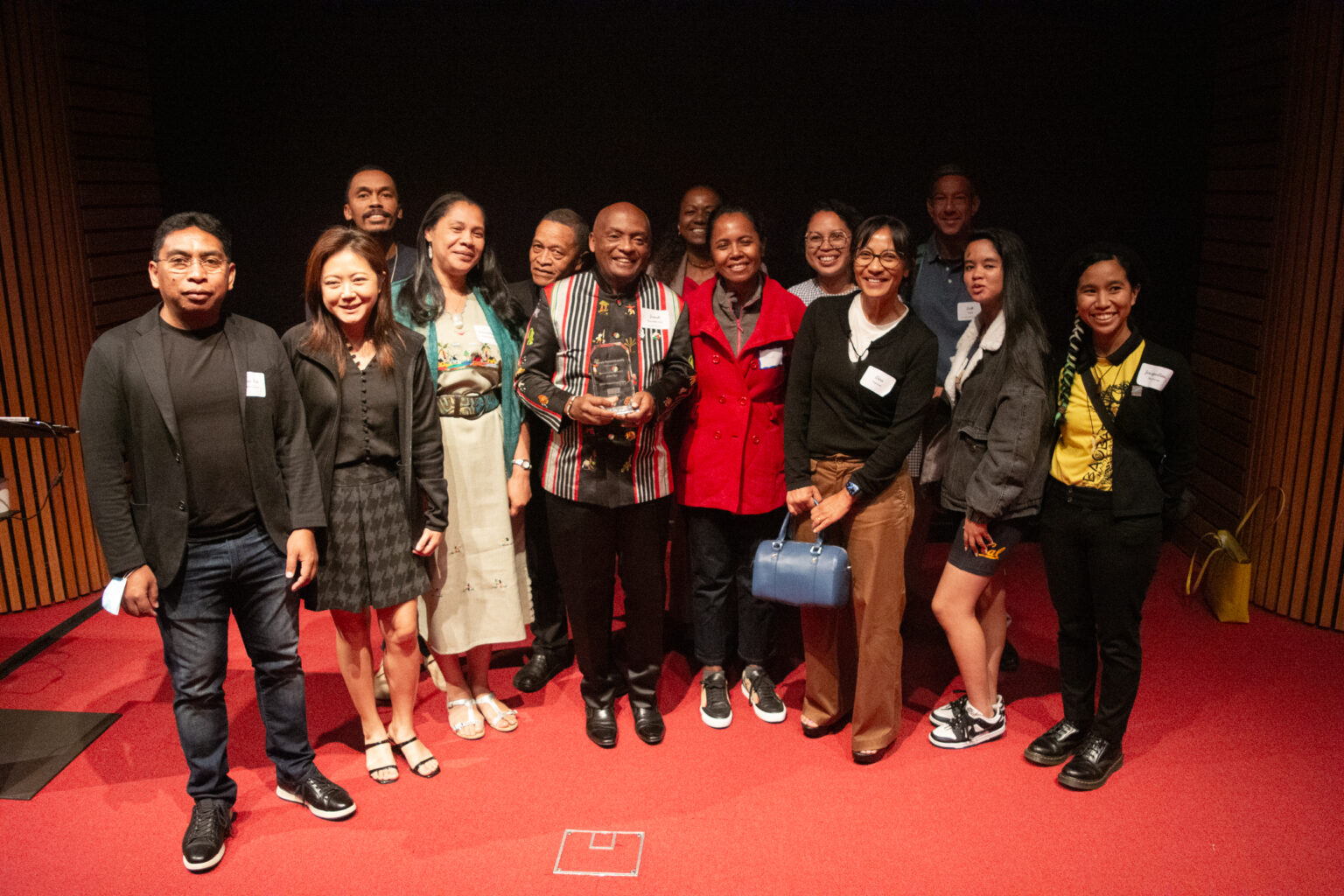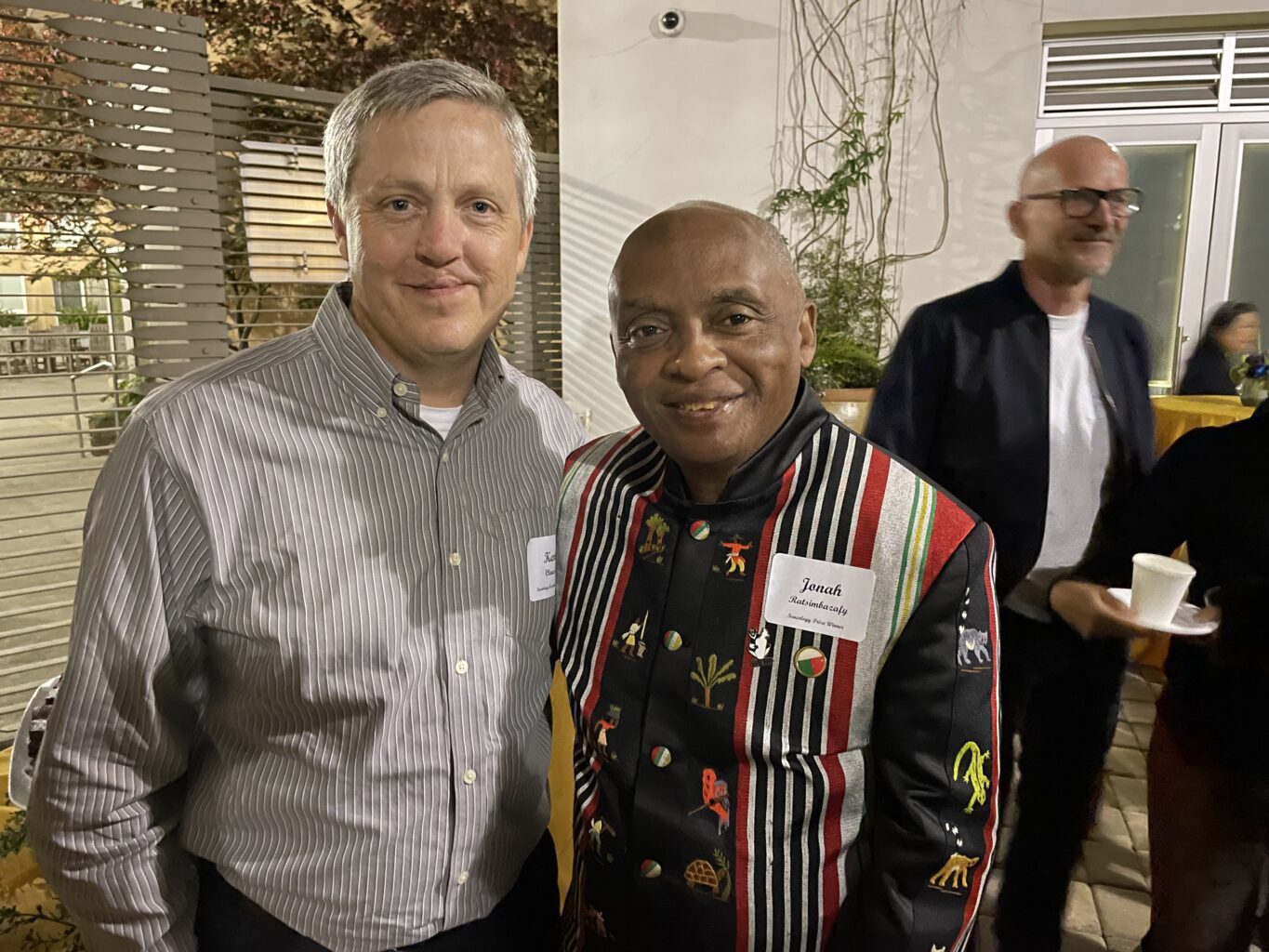Listen to Madagascar’s communities, says Seacology Prize recipient Jonah Ratsimbazafy
“If I had to summarize in a few words the reasons for my success, it would be the power of partnership. The power of collaboration. Mutual listening, and mutual trust.”
Dr. Jonah Ratsimbazafy stressed collaboration as he accepted the 2023 Seacology Prize. His life story has been one of overcoming skepticism, bringing people together, and advocating for sustainable development in his home country of Madagascar.
For the first time since 2019, we were able to gather in person to celebrate the tireless work of this year’s prize recipient. And there was much to celebrate. For decades, the accomplished primatologist has worked hard to bring people together to protect his home island’s famed but threatened biodiversity, in particular its famous lemurs.
In his acceptance speech, Ratsimbazafy recounted how as a youth from the capital city, a trip to a local wildlife park first brought him face-to-face with the unique and threatened forest creatures. The encounter would change the course of his life, as he found himself more and more moved by the plight of these endangered primates.
“I used to be a paleontologist, and when I went into the field to search for fossils I discovered lemur traps and even some dead lemurs,” he explained. “I said to myself, ‘the fossils can wait under the ground for now. Taking care of the creatures that are still alive is more urgent.”
It’s not an easy task. Conservationists in Madagascar often clash with a hostile political environment, corruption, and the crippling poverty that makes many communities rely on illegal logging and poaching. But Ratsimbazafy’s knowledge, vision, and empathy for his country’s poor communities have won over many doubters. With the Madagascar Primate Study and Research Group (GERP), an NGO he co-founded, he has worked with former poachers to develop sustainable alternative livelihoods like beekeeping and ecotourism. Today, many of them work to actively protect the species they once hunted. As more people have seen the long-term benefits of such work, Ratsimbazafy’s reputation has grown.
“Conservation is always difficult when people have little access to food, to education, and to health care,” he explained. “Before we can accomplish anything, we ought to build first the foundation of trust. Then the partnership can lead to the success of our mission. Let the voice of the local communities be heard. Let’s keep learning and listening.”
There is much work left to do. Only 10 percent of Madagascar’s historical forests remain. Most lemur species are at high risk of extinction, and some have already been lost. But with growing awareness of Madagascar’s plight and cooperation toward environmental protection, Ratsimbazafy remains an optimist.
“Thank you for this incredible honor,” he said, closing his address to a packed theater of Seacology supporters. “Let us work together to create a brighter and more promising future for our primate cousins, for our planet, and for us.”
Watch the full recording of the 2023 prize ceremony, along with our profile of Dr. Ratsimbazafy and his acceptance speech, below.


